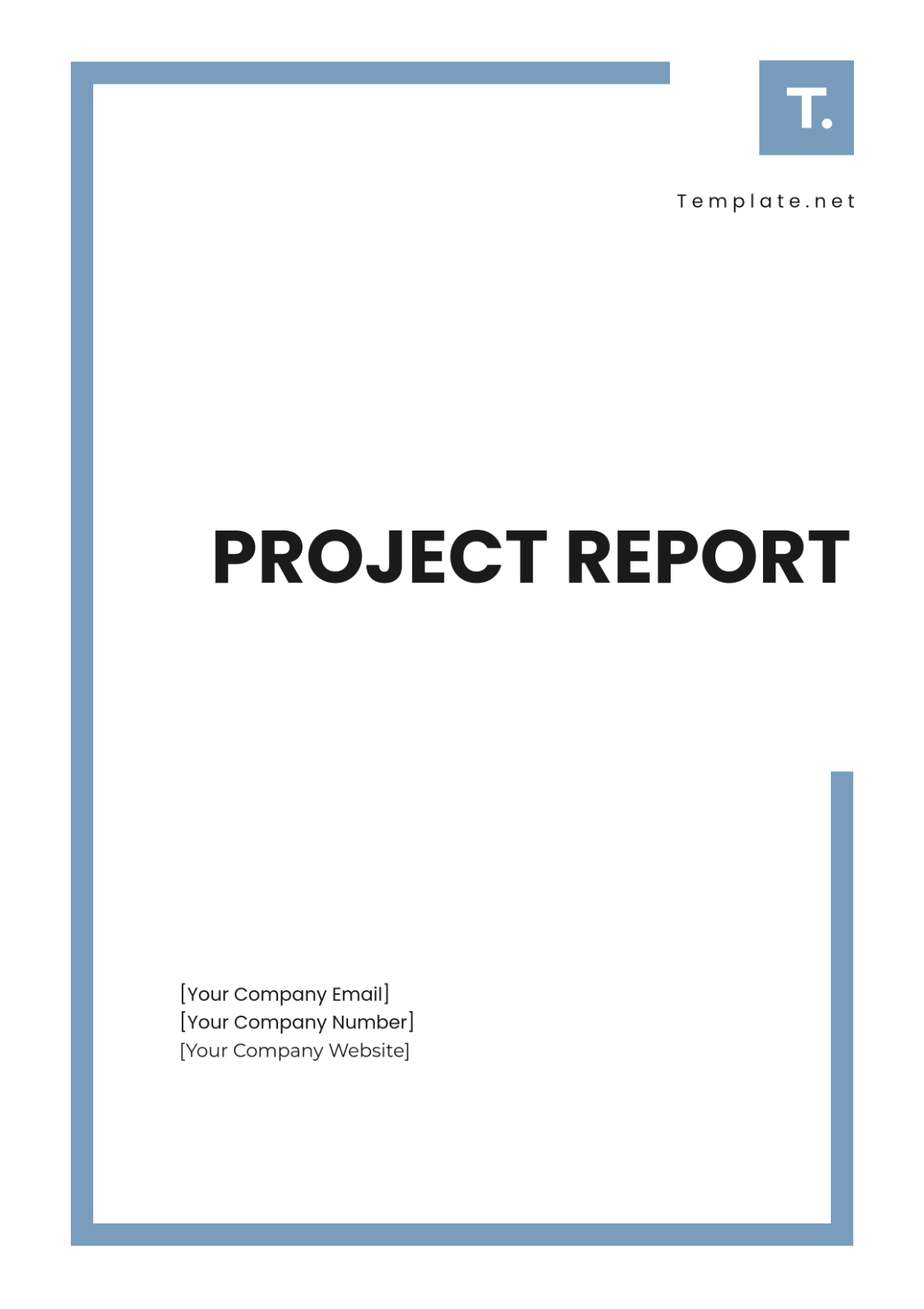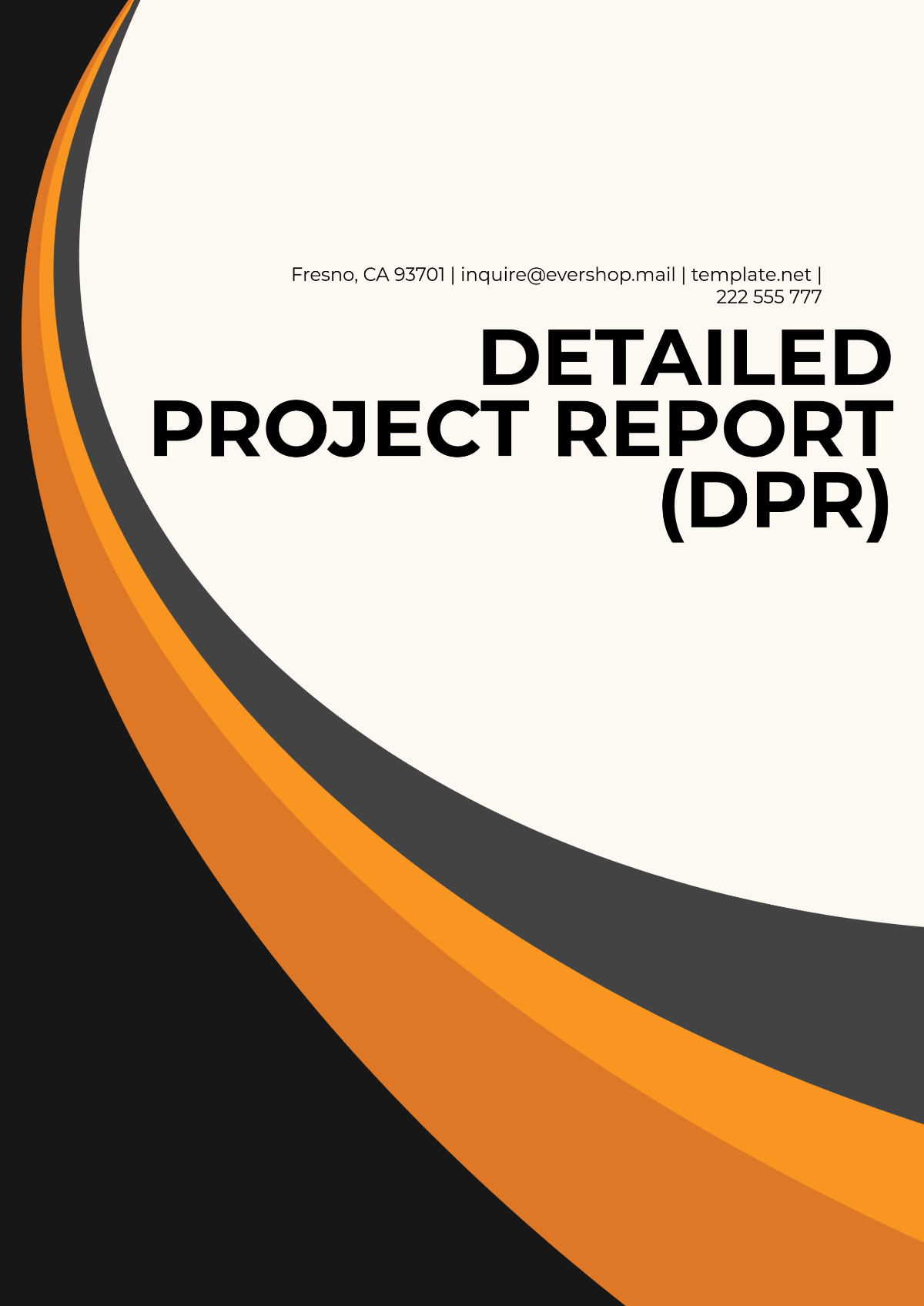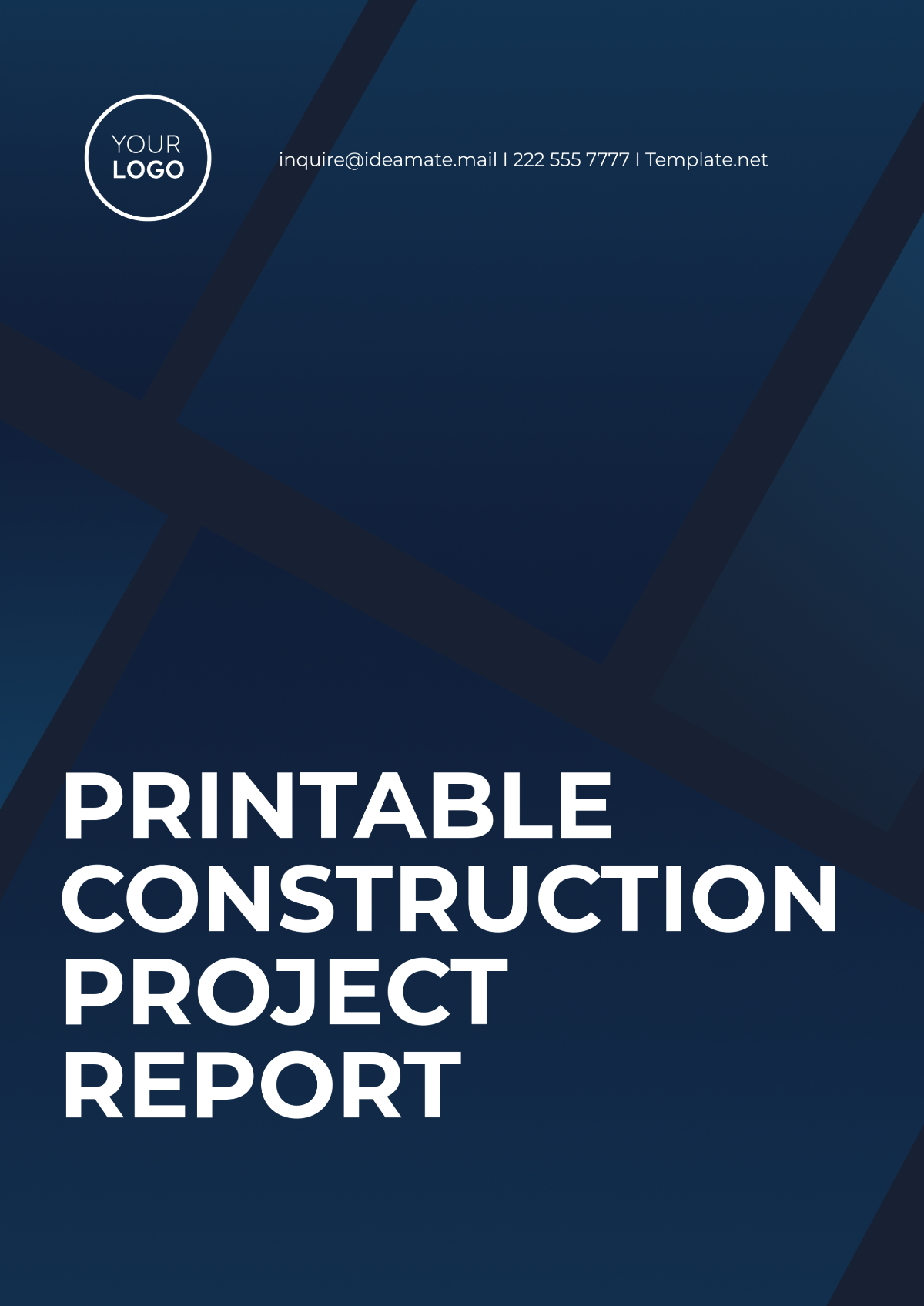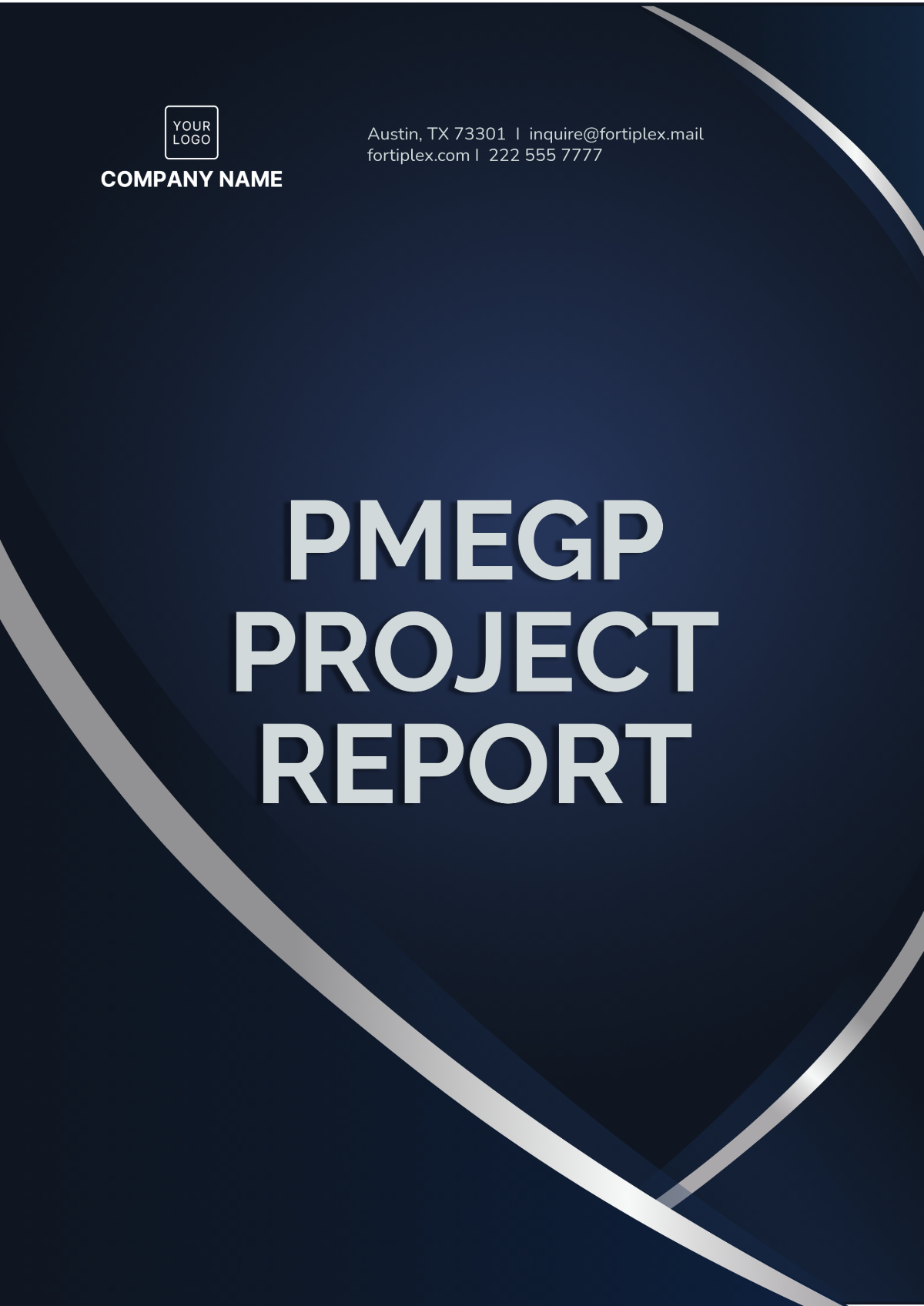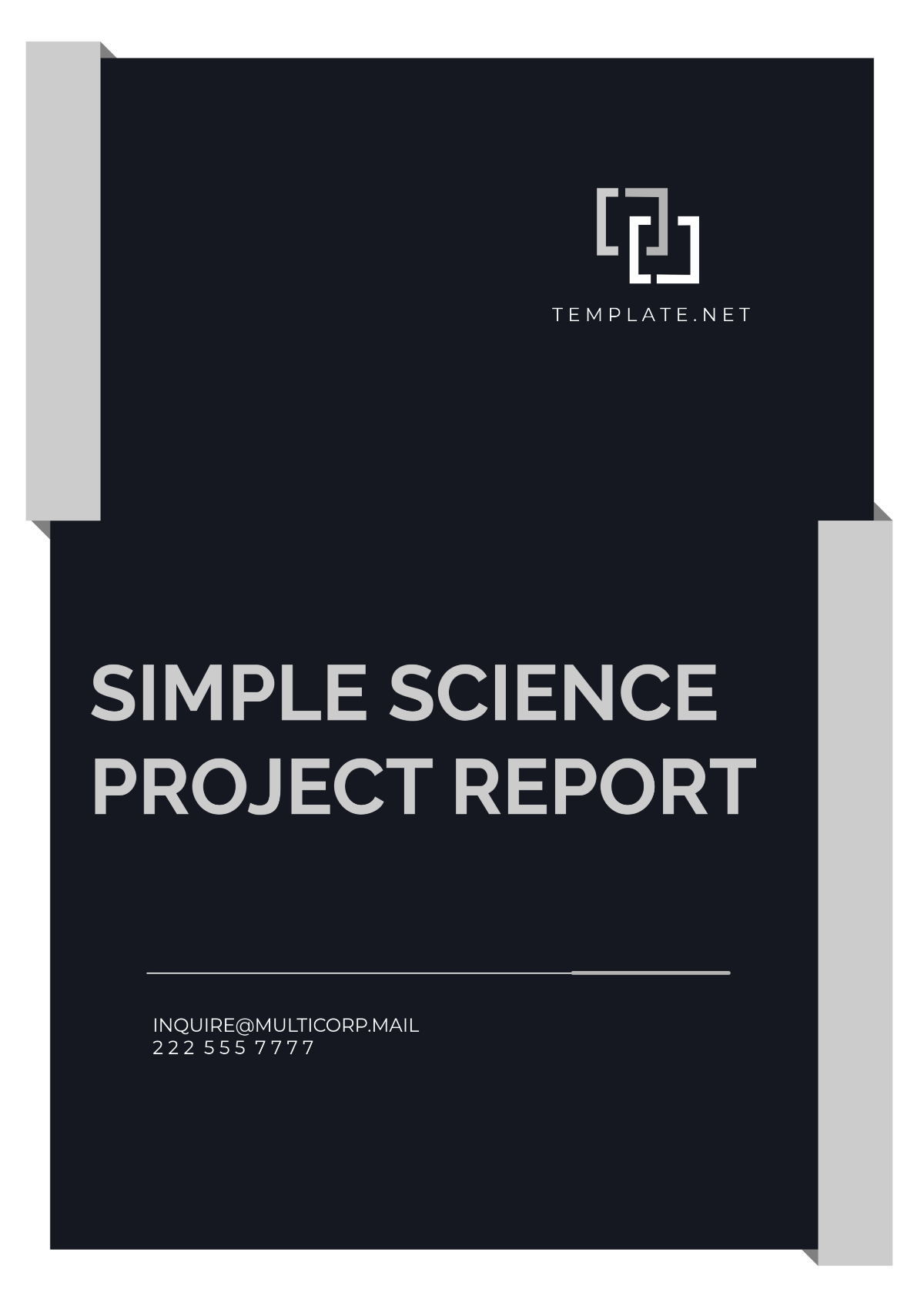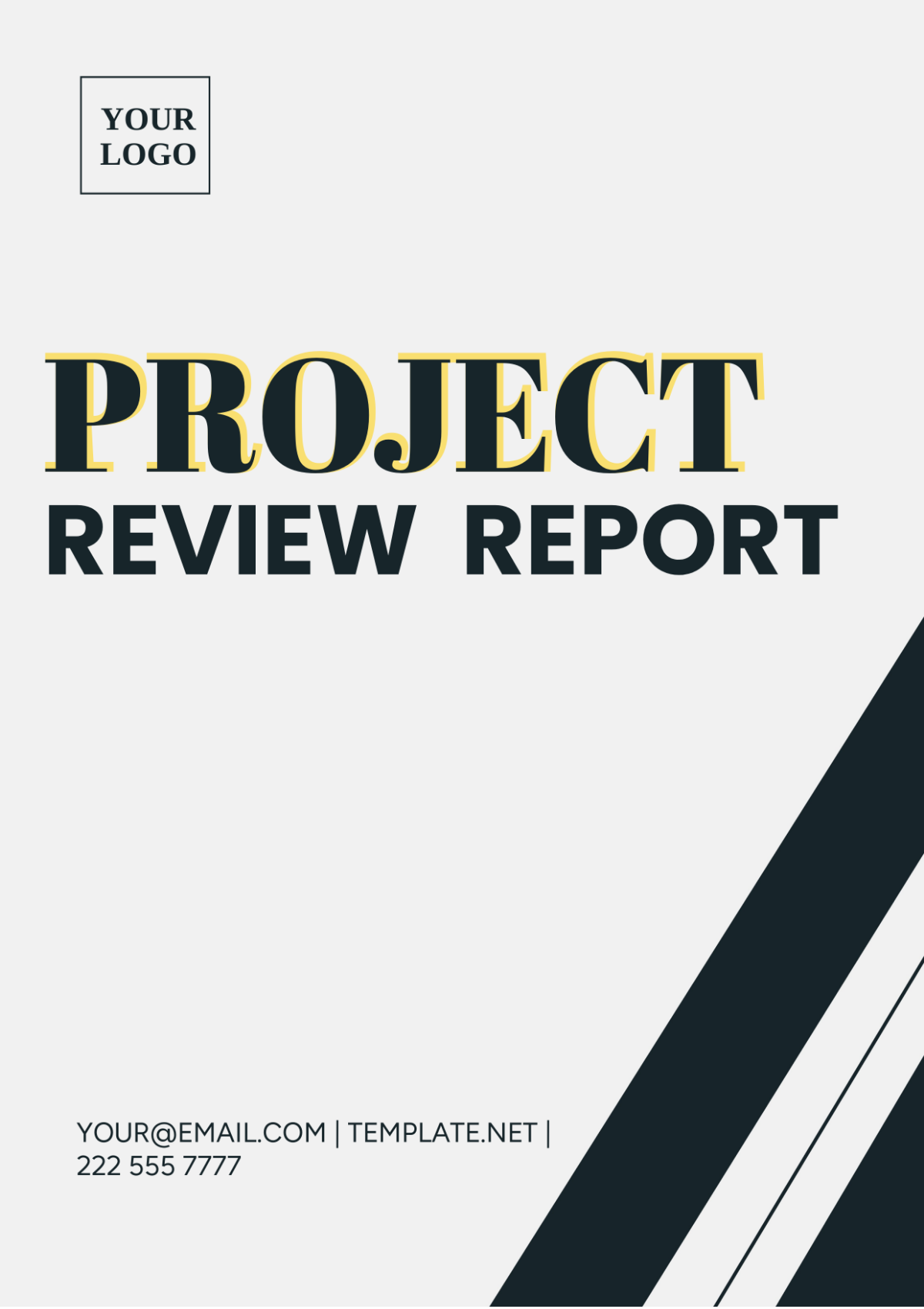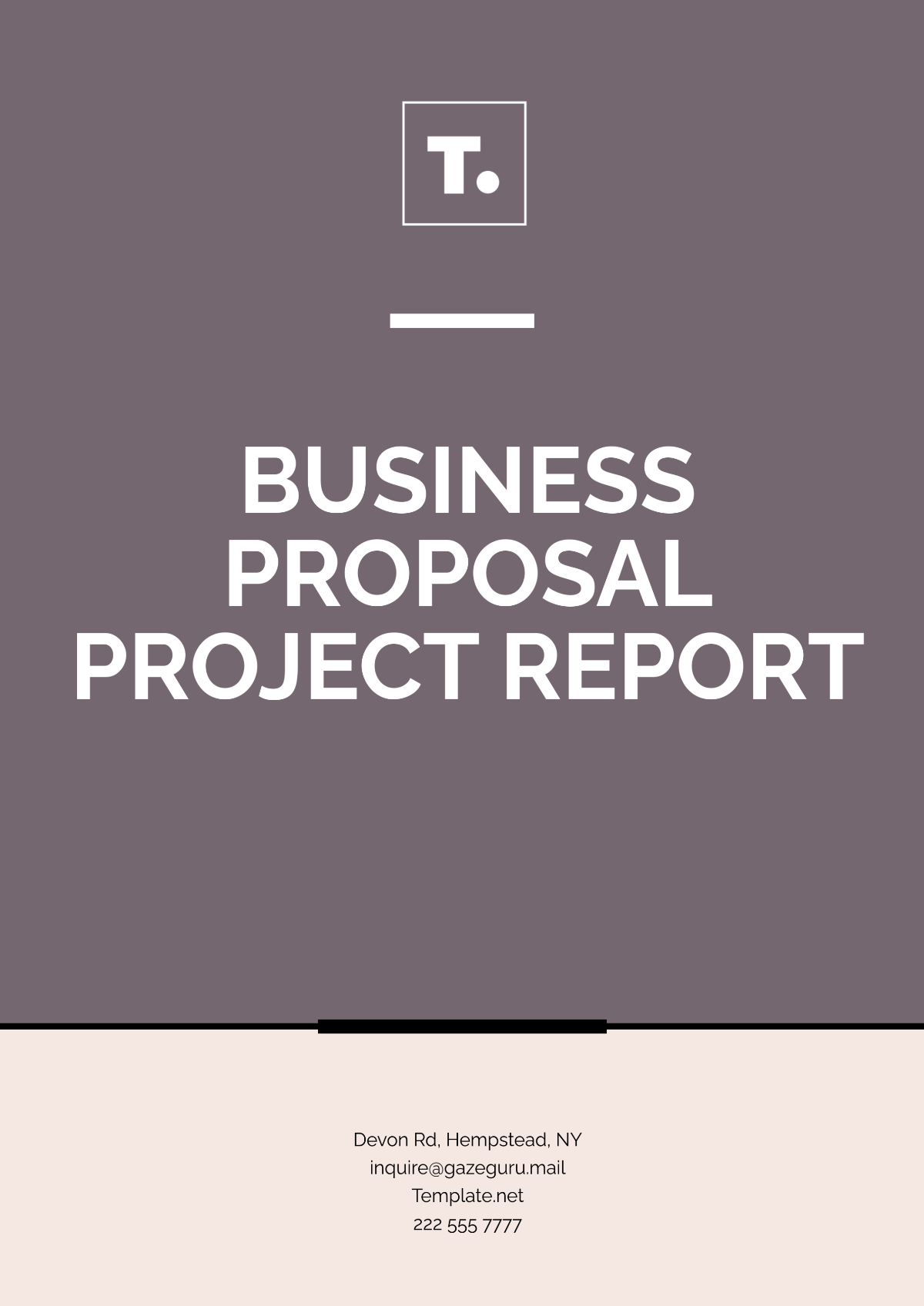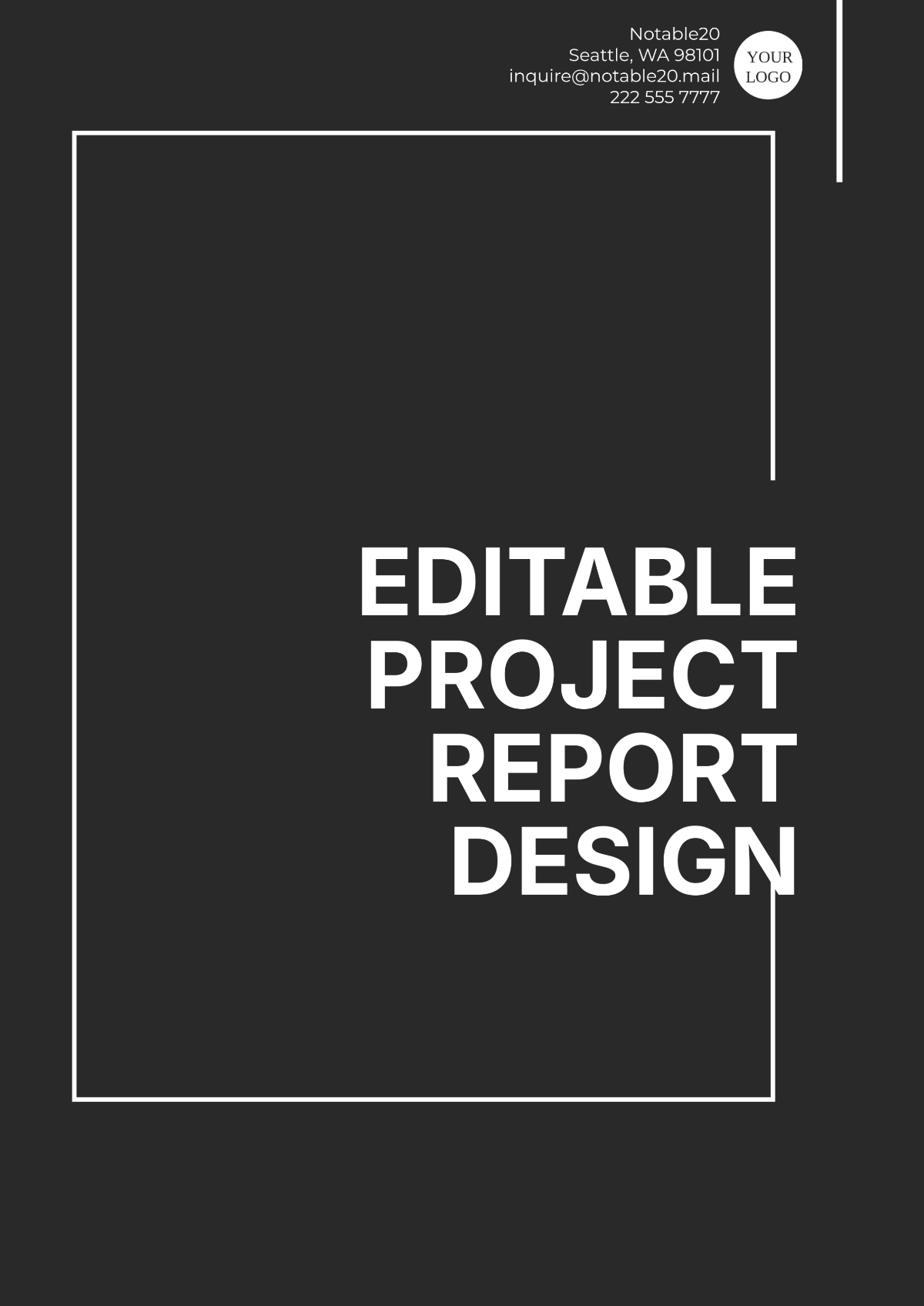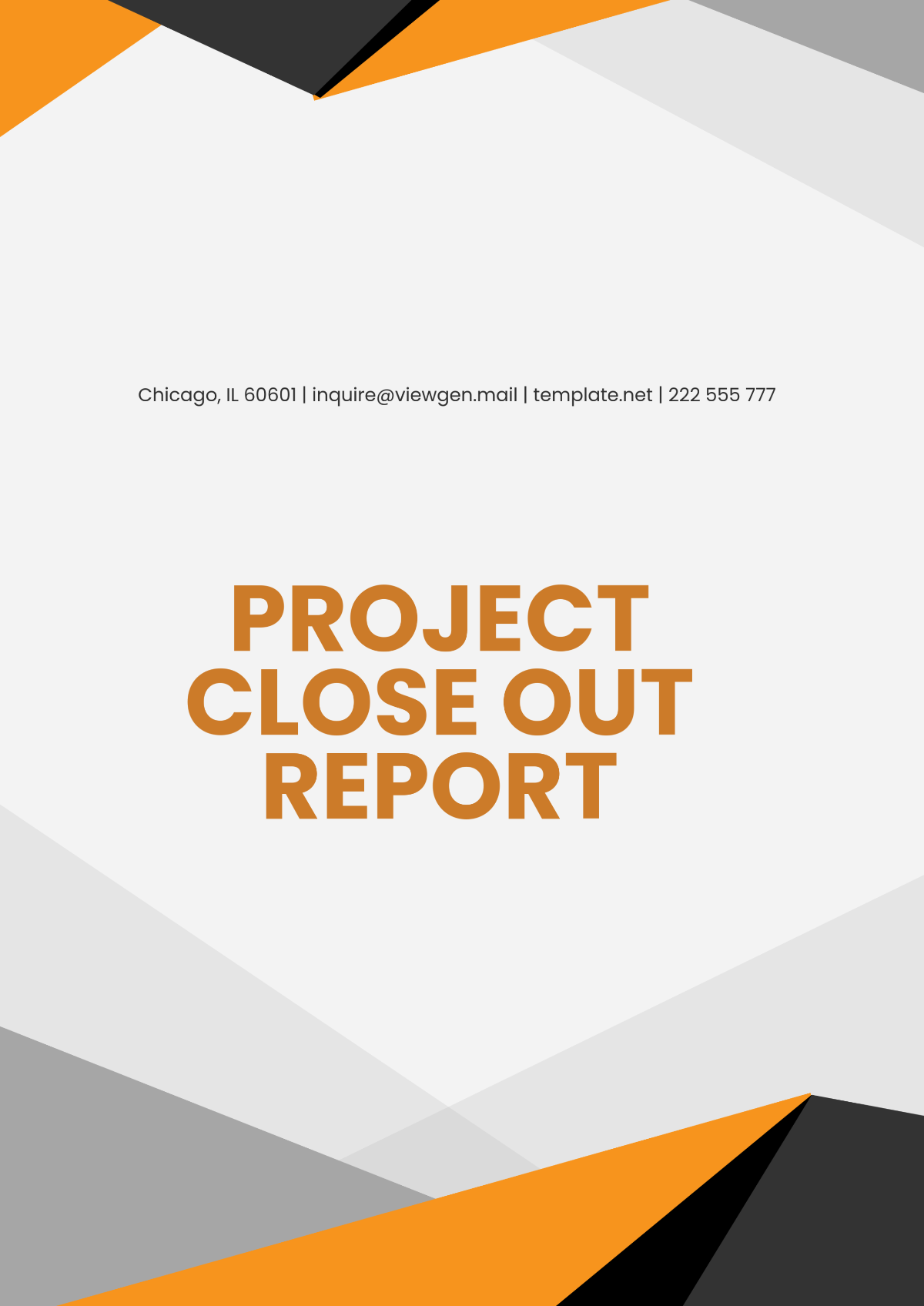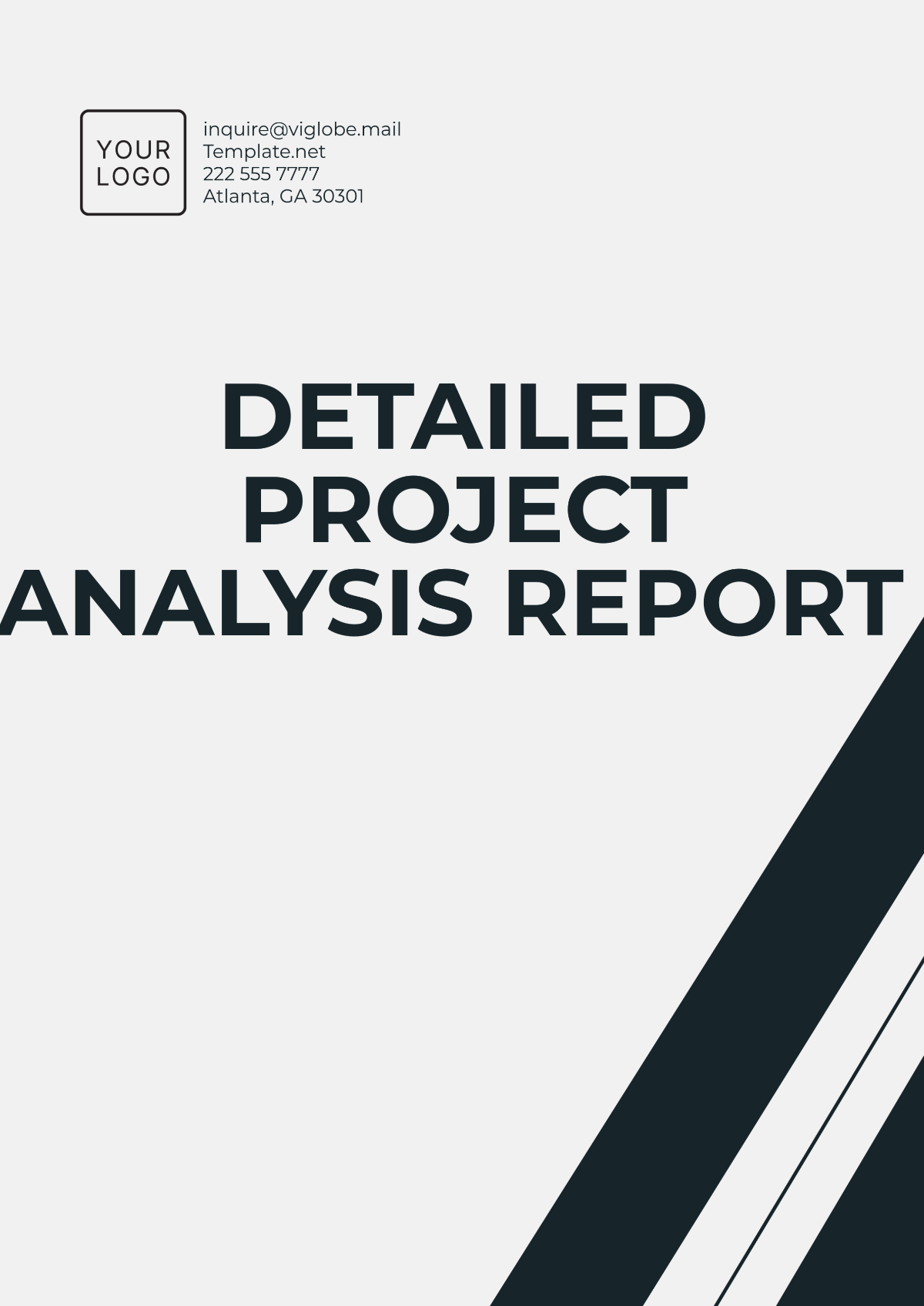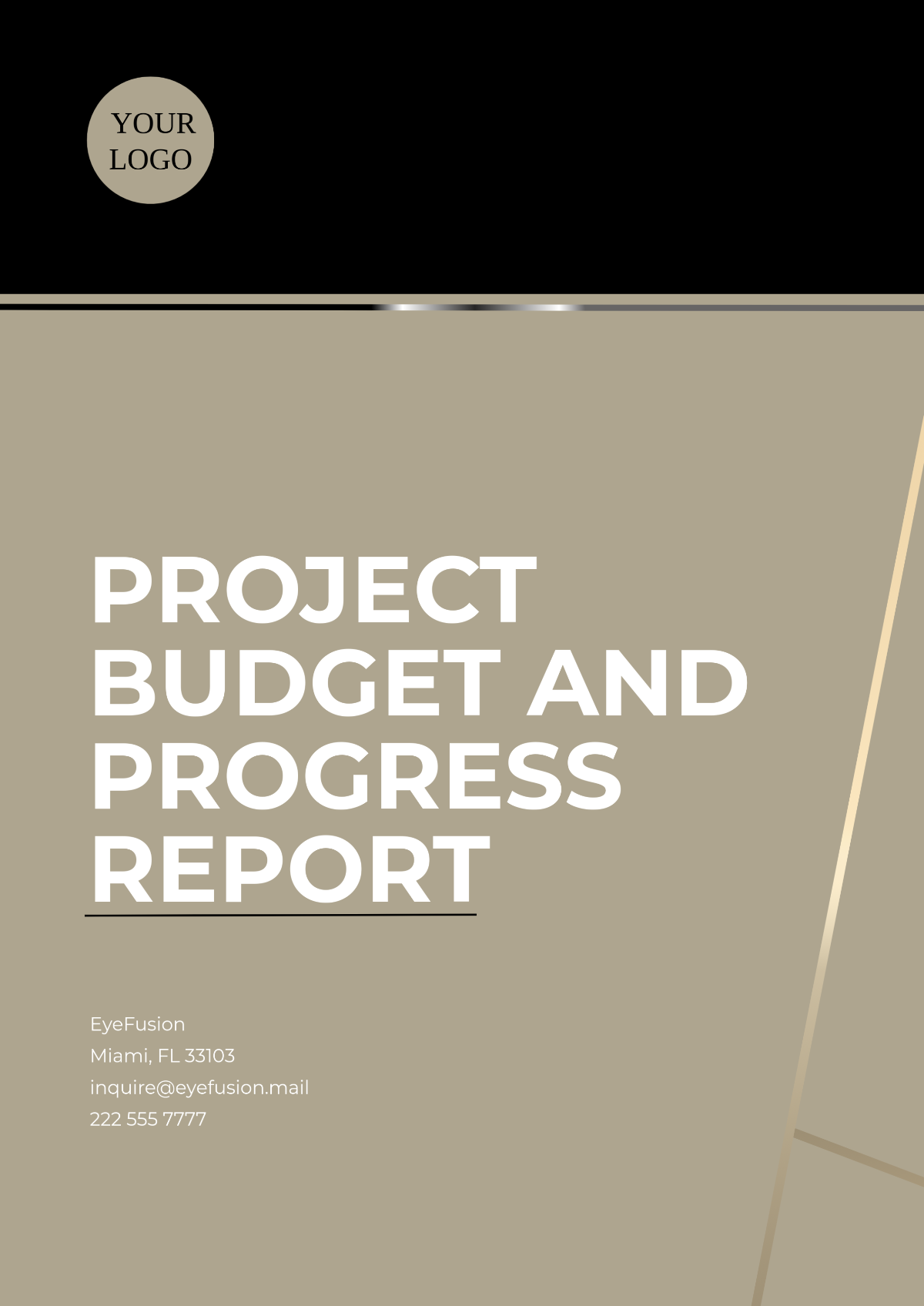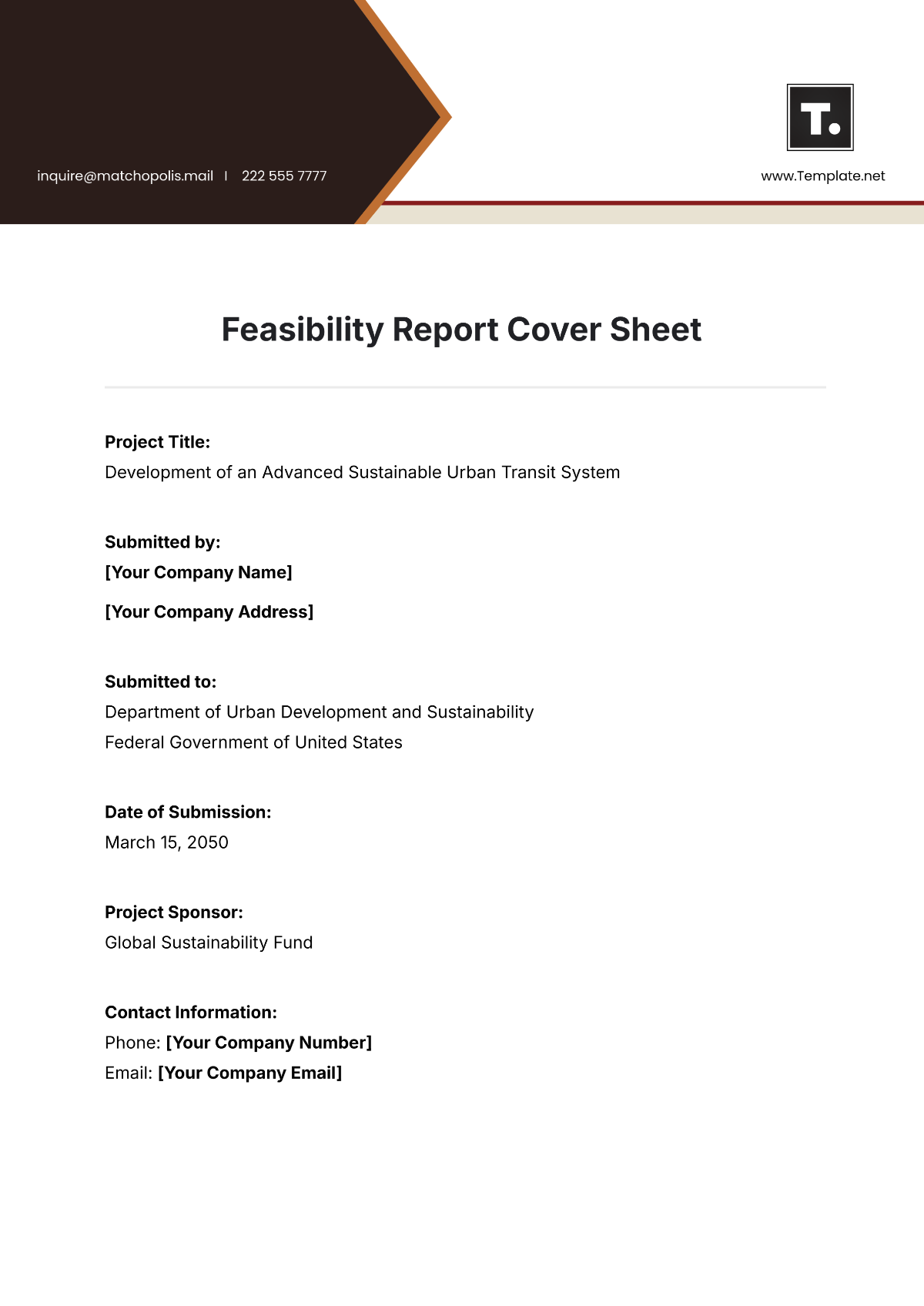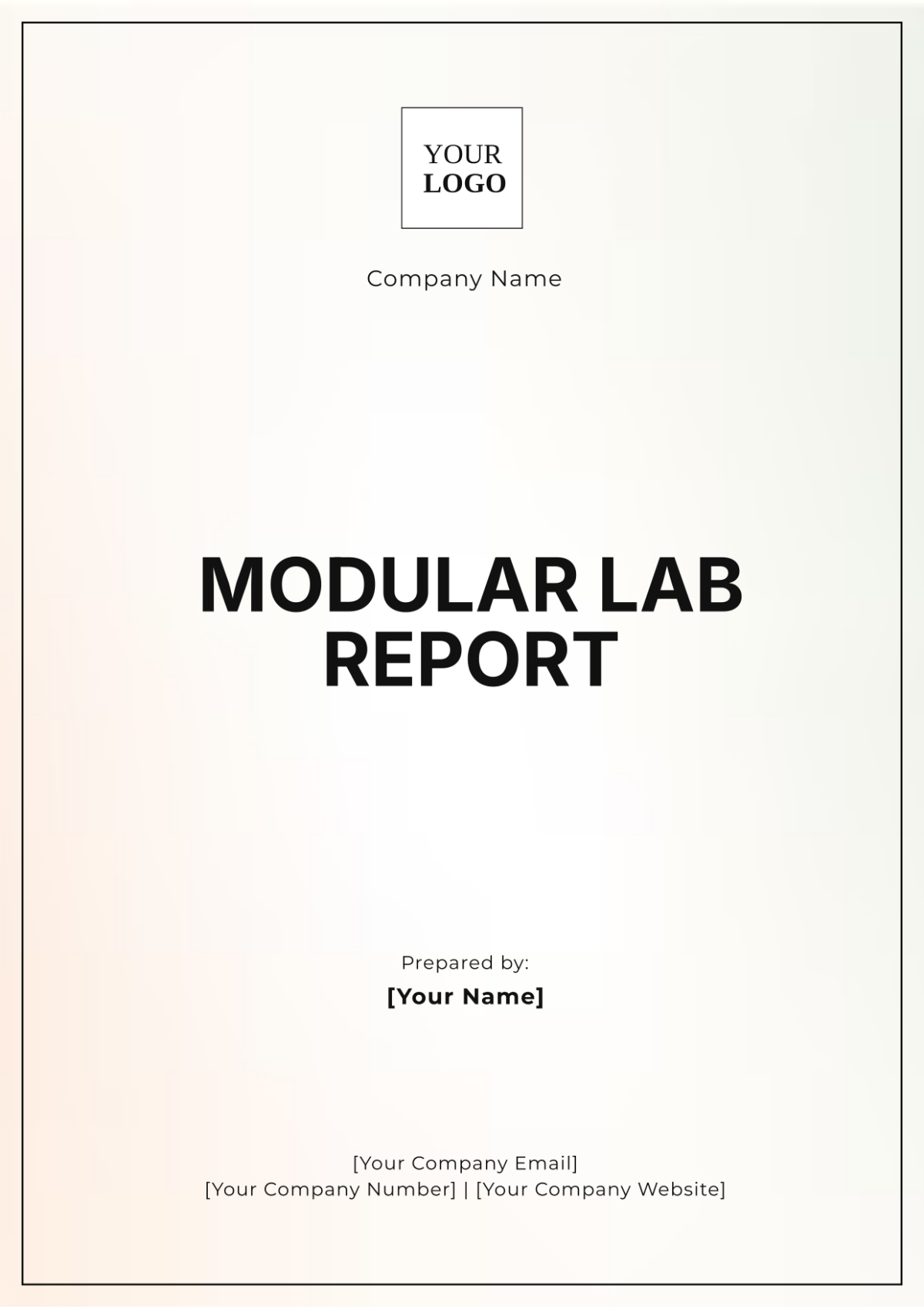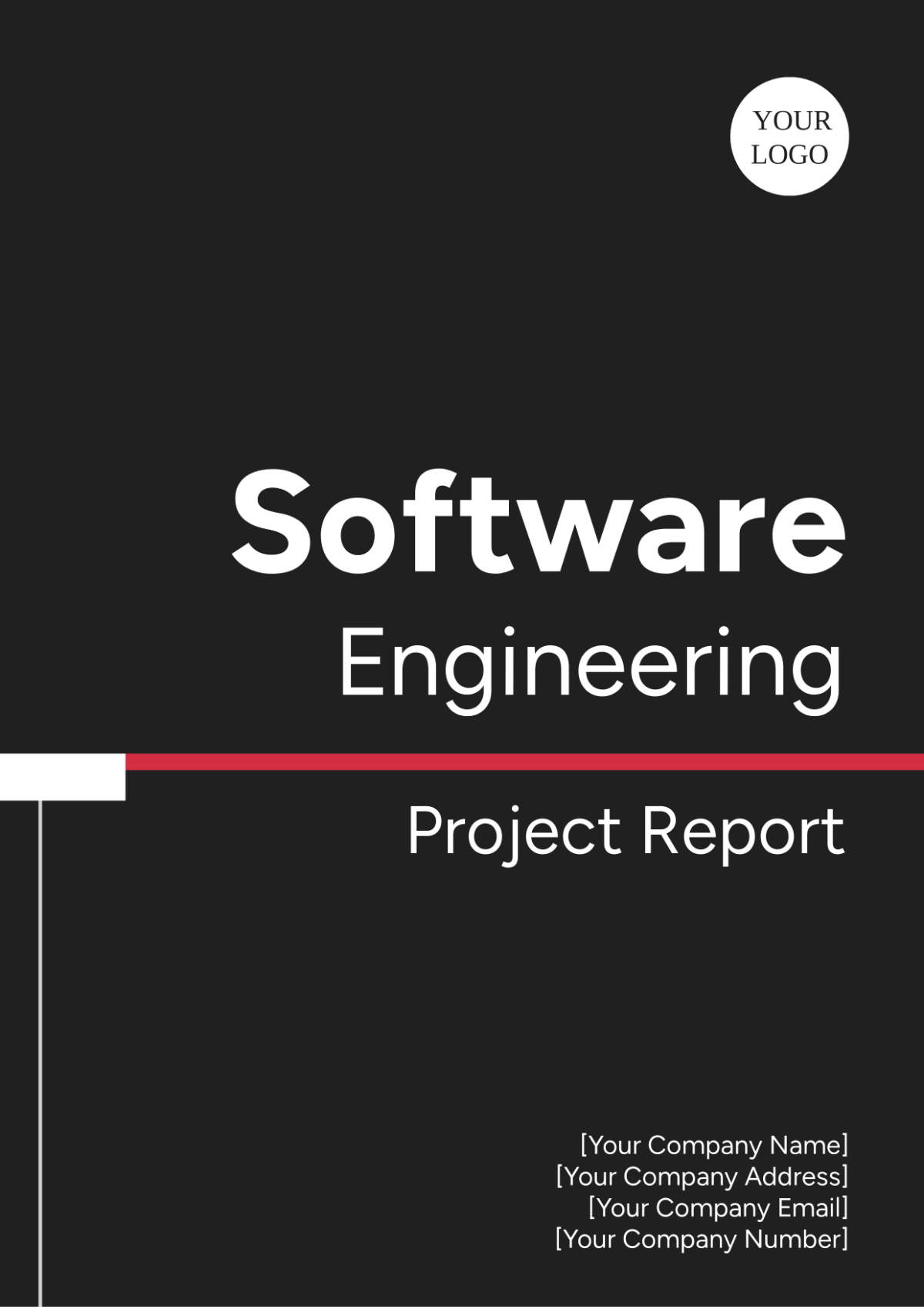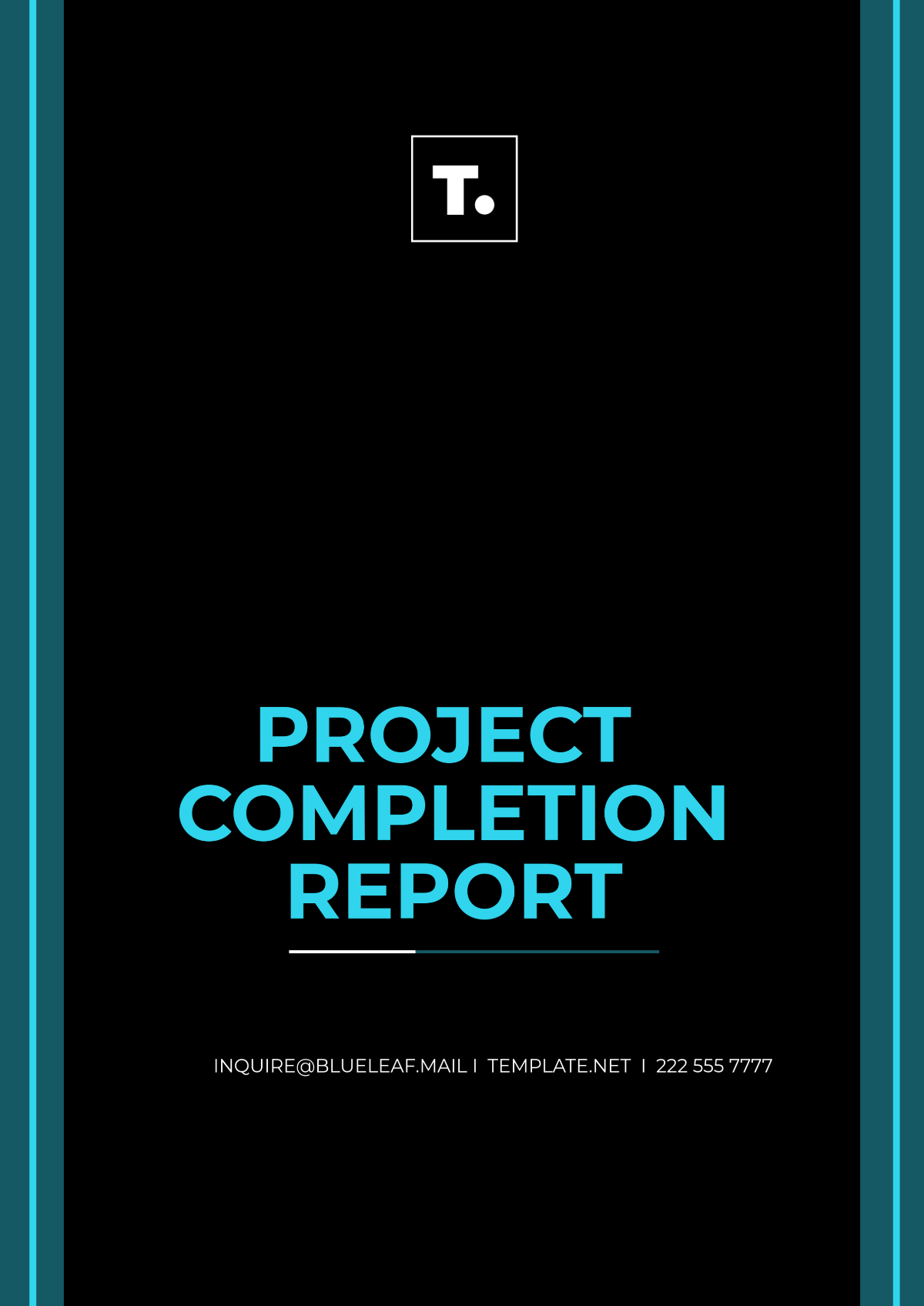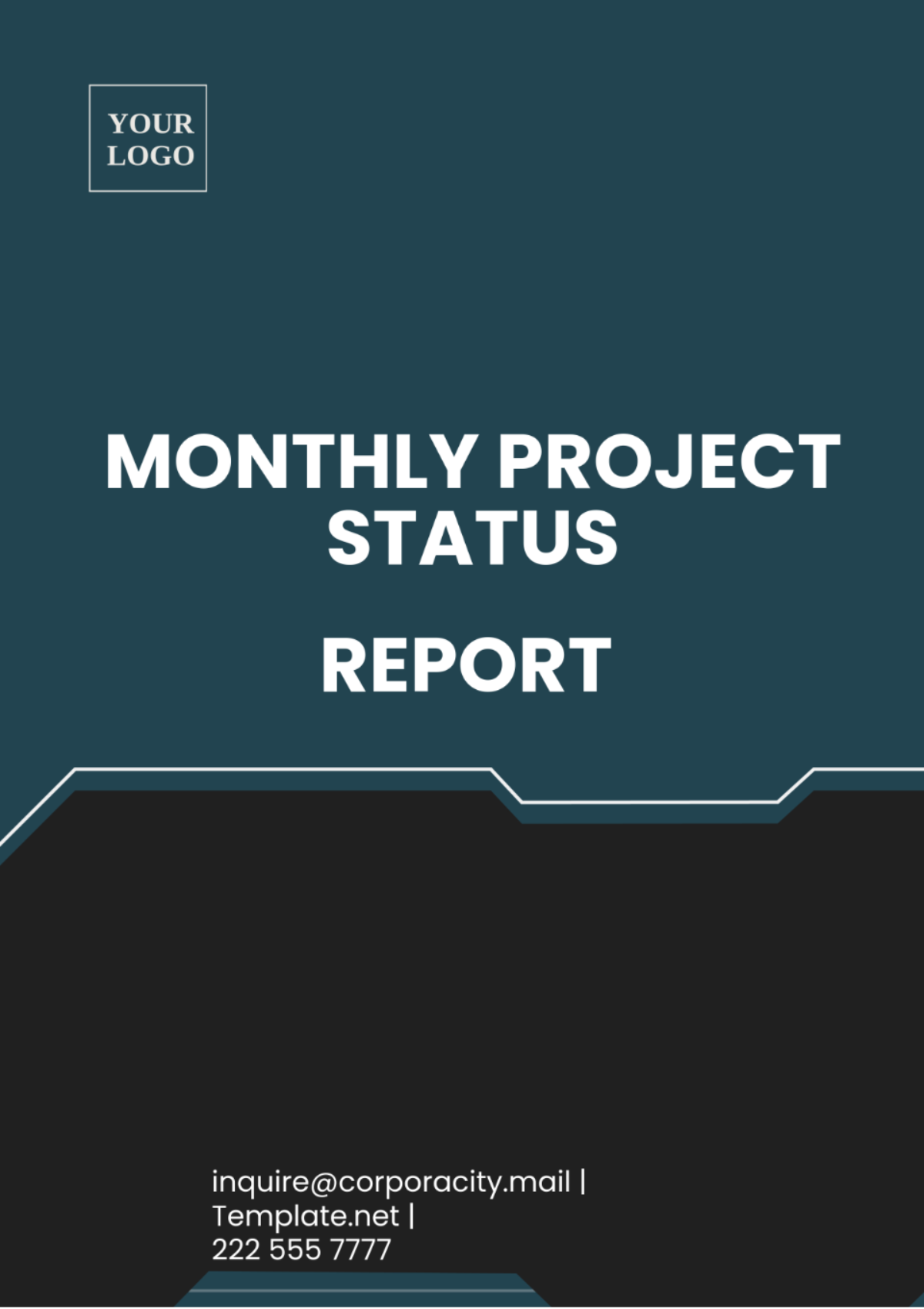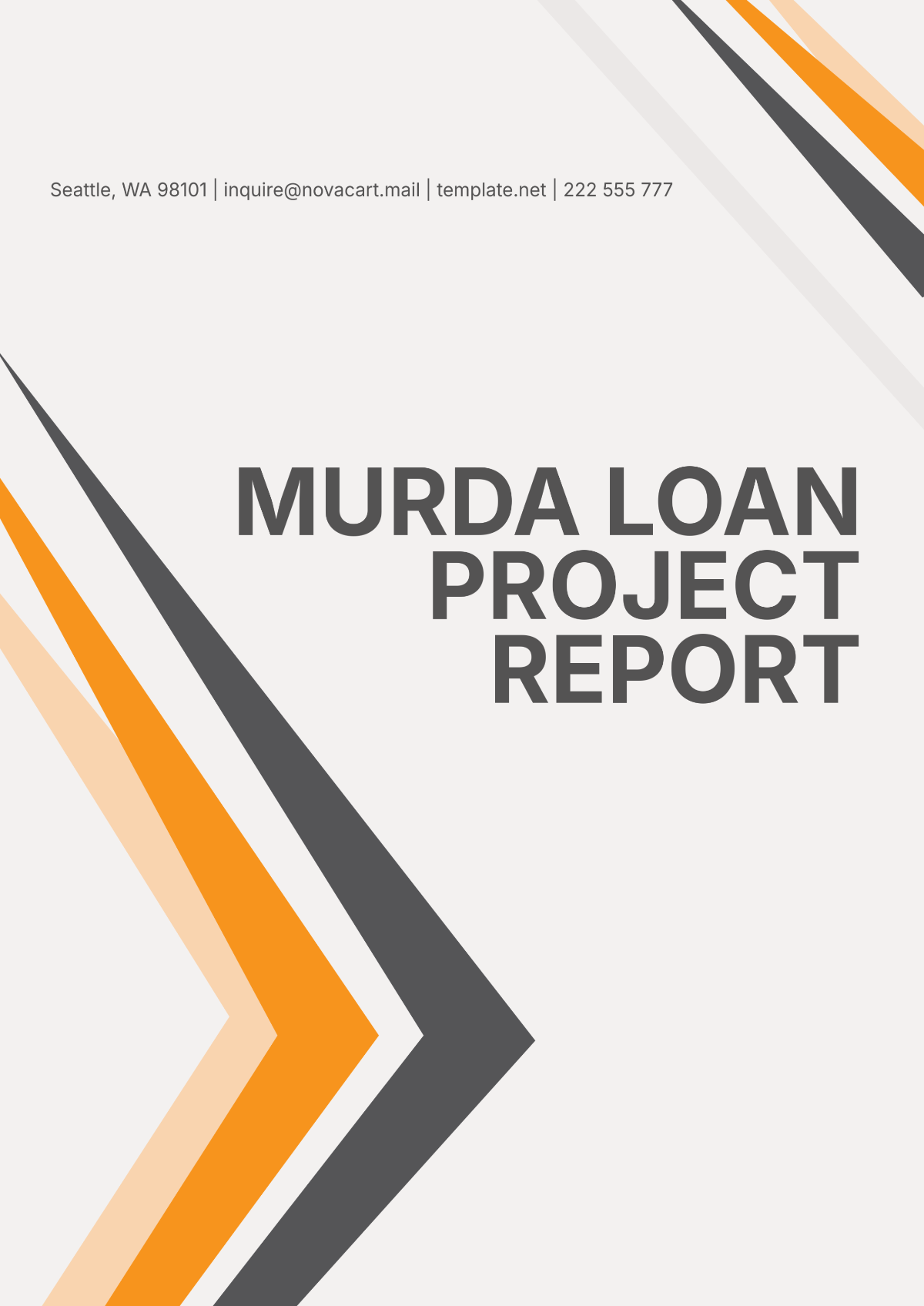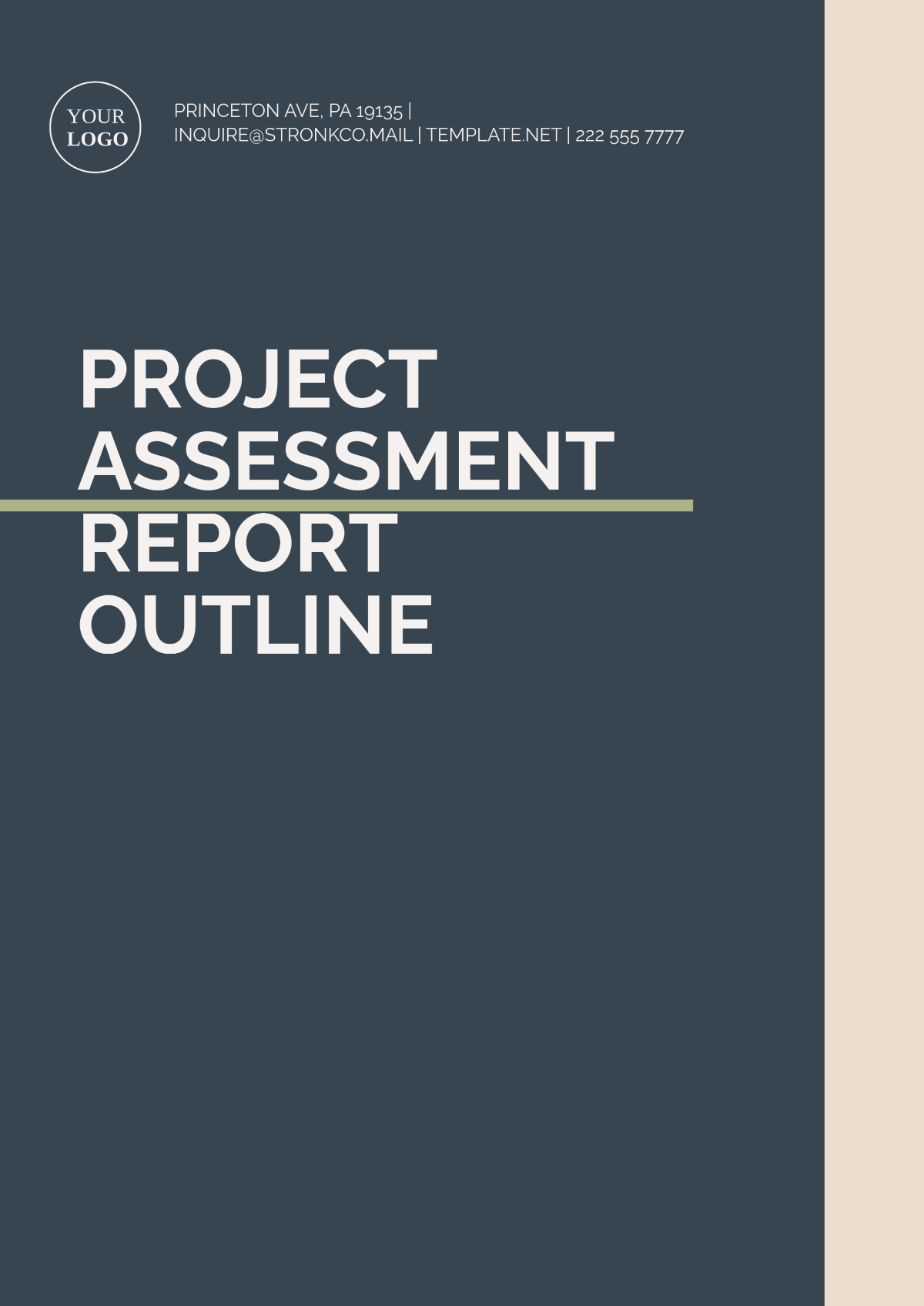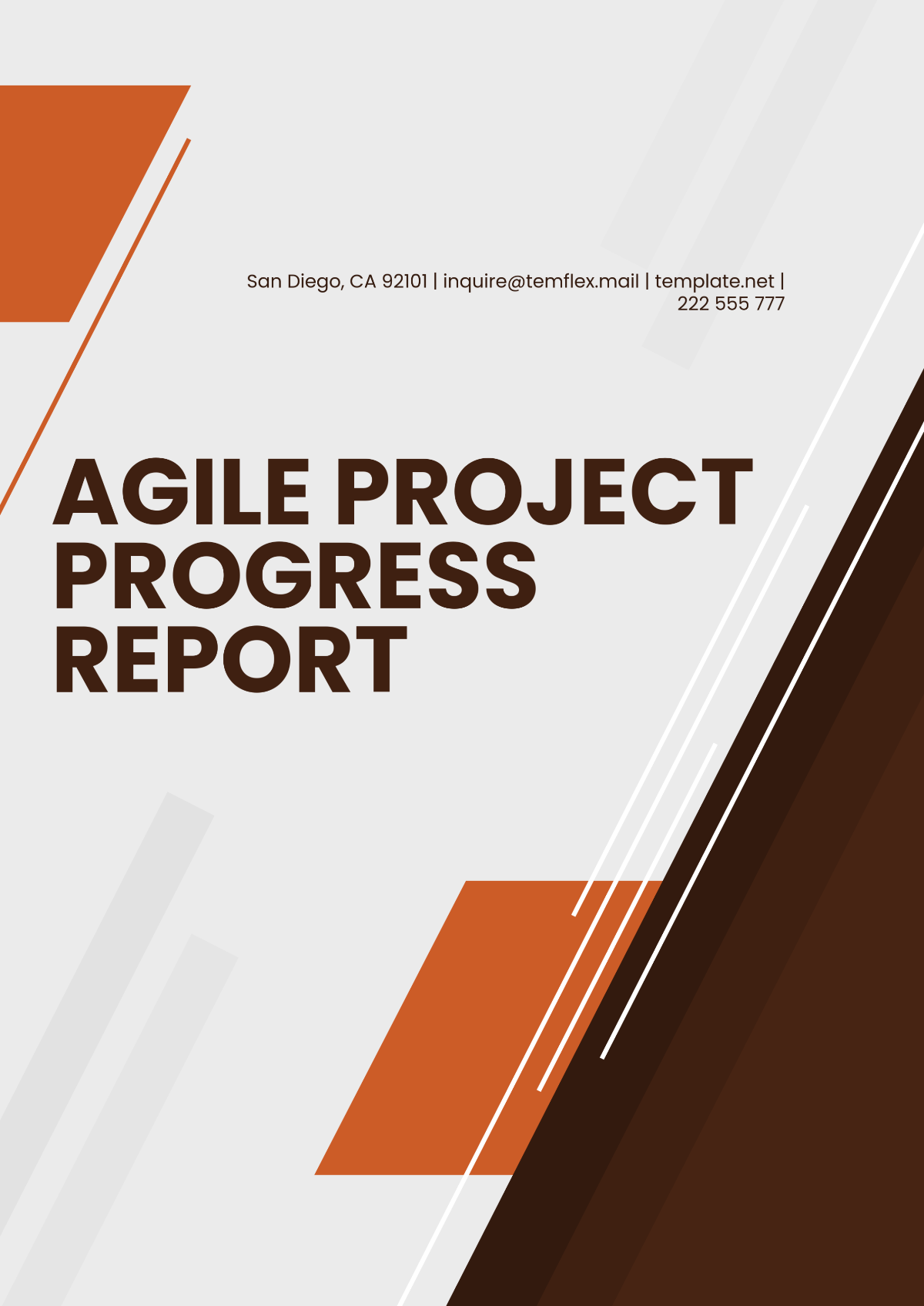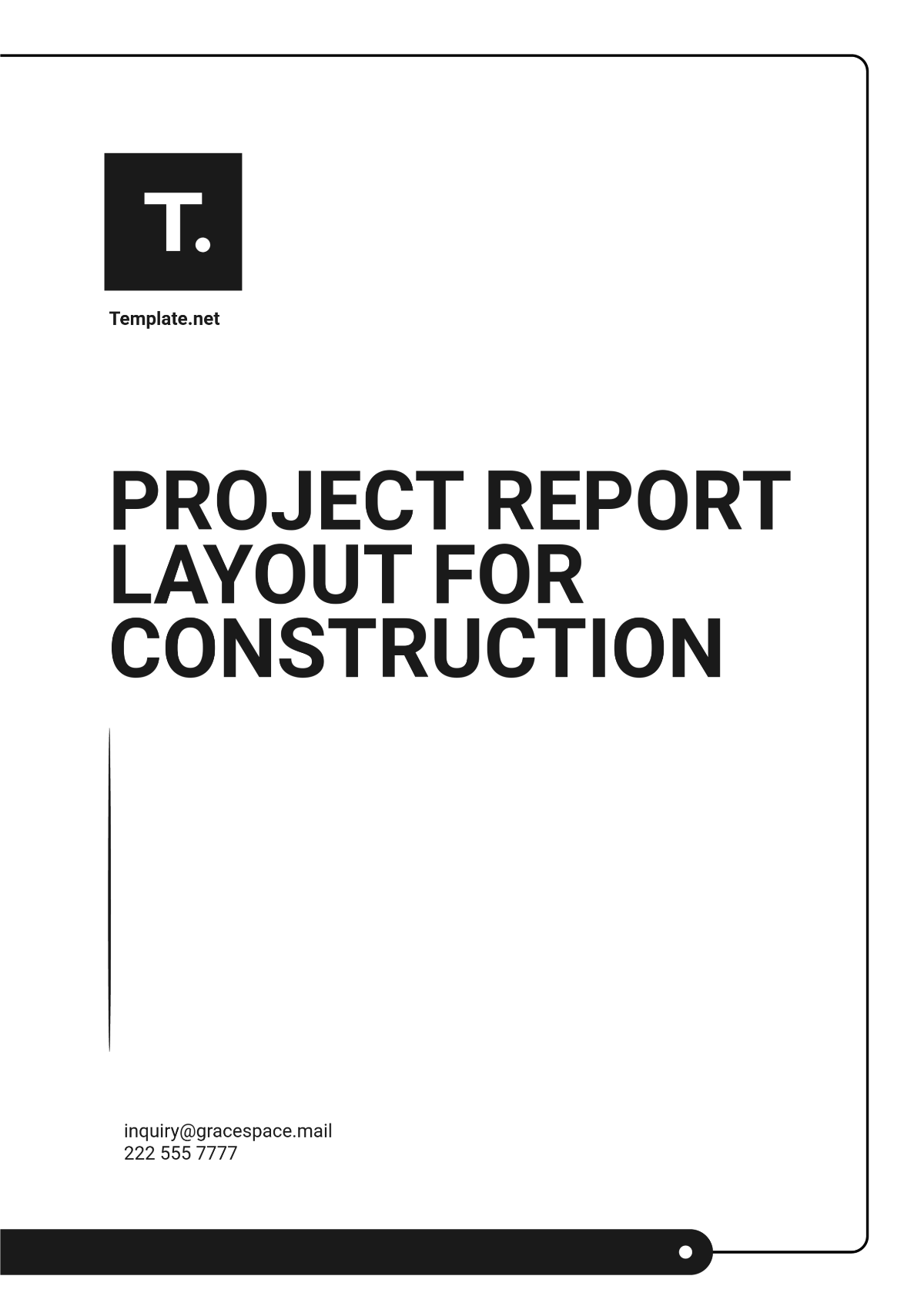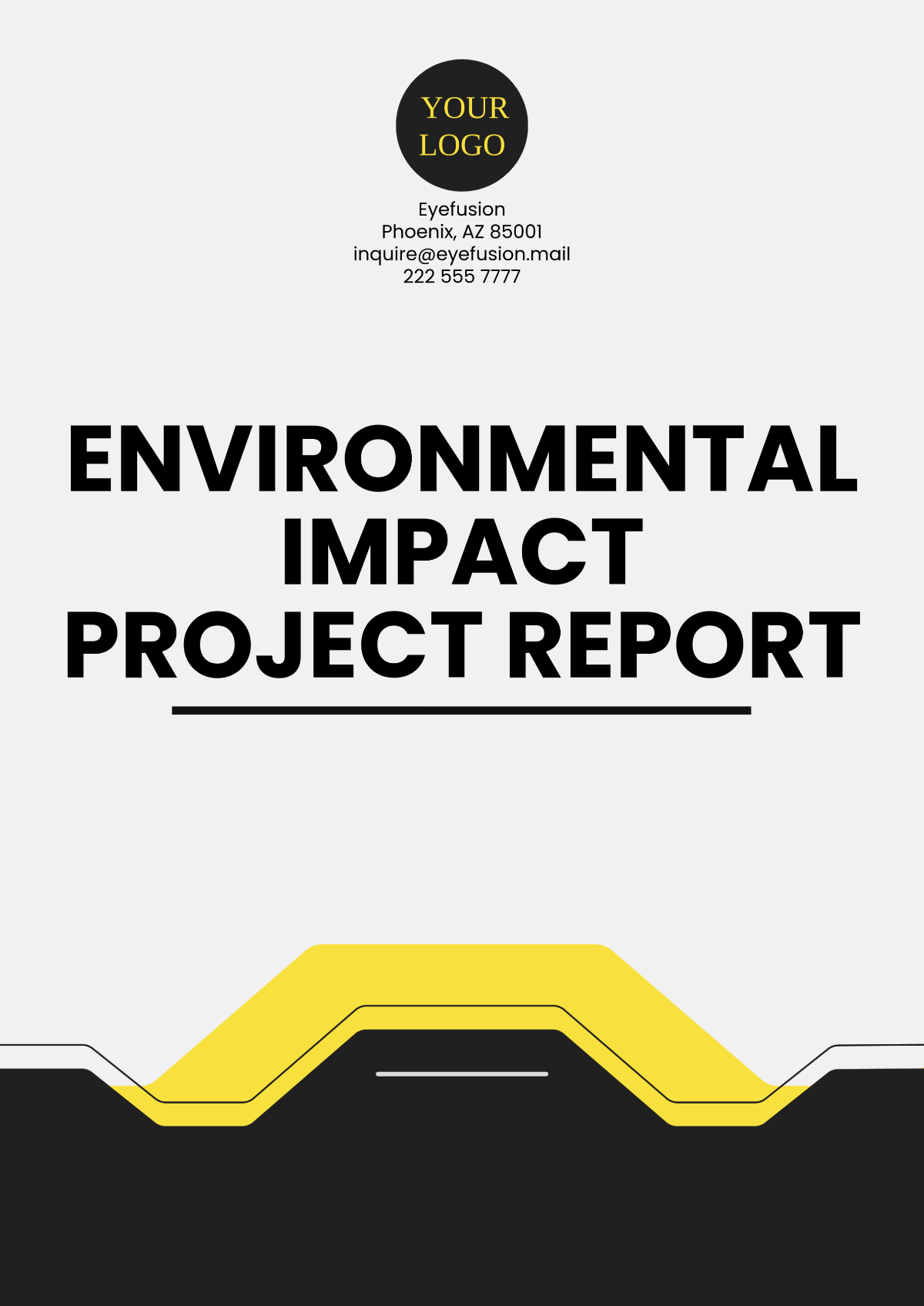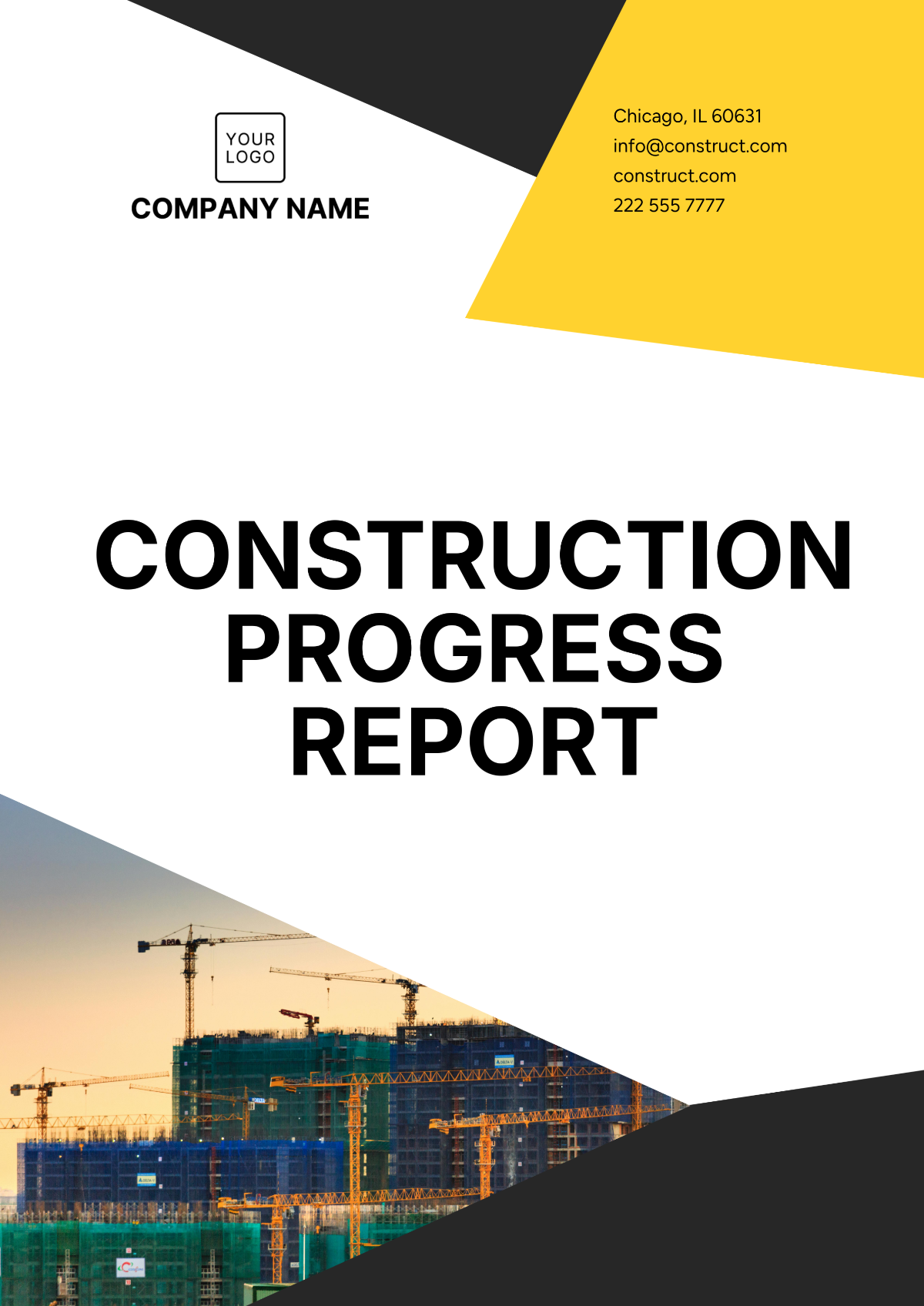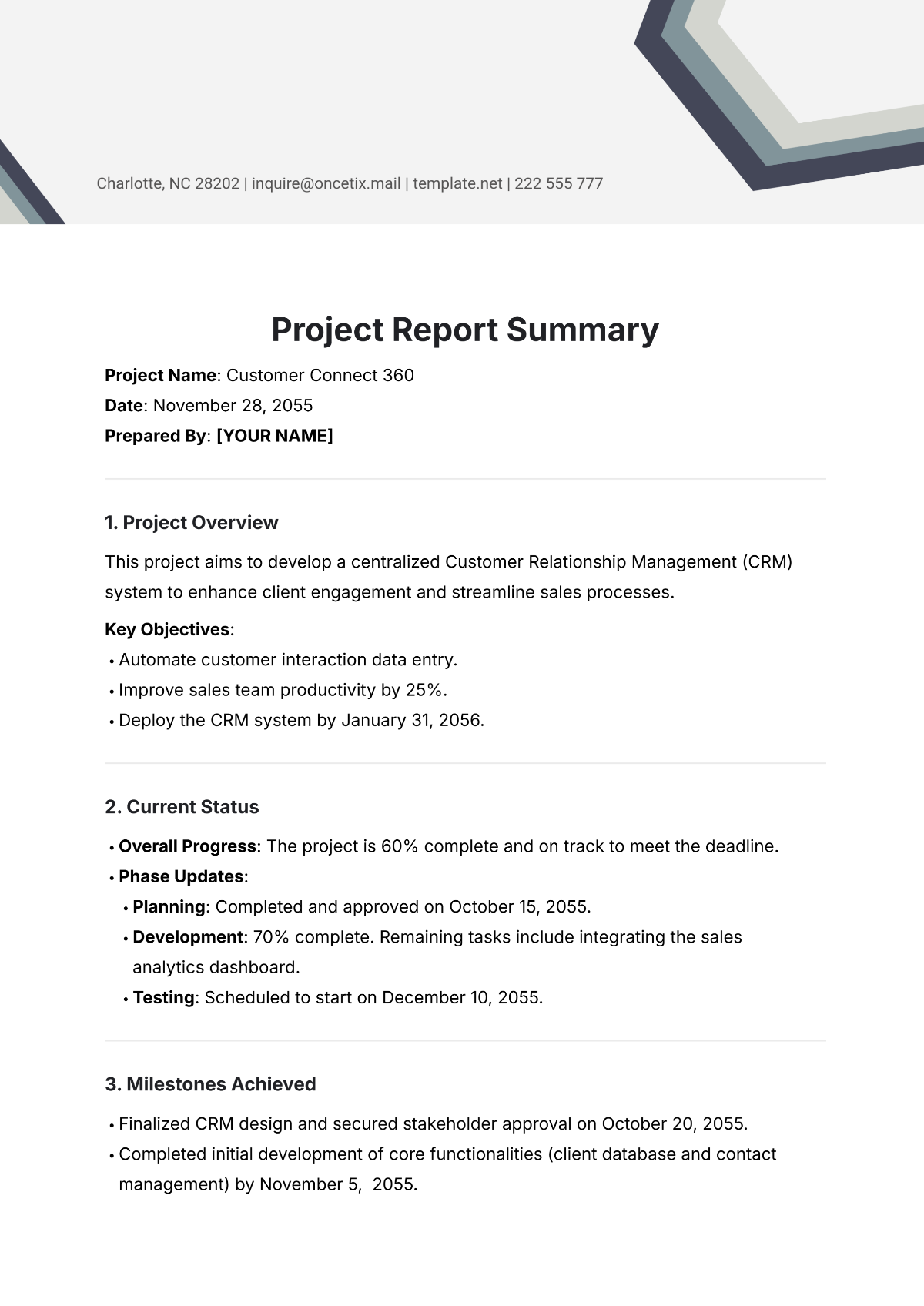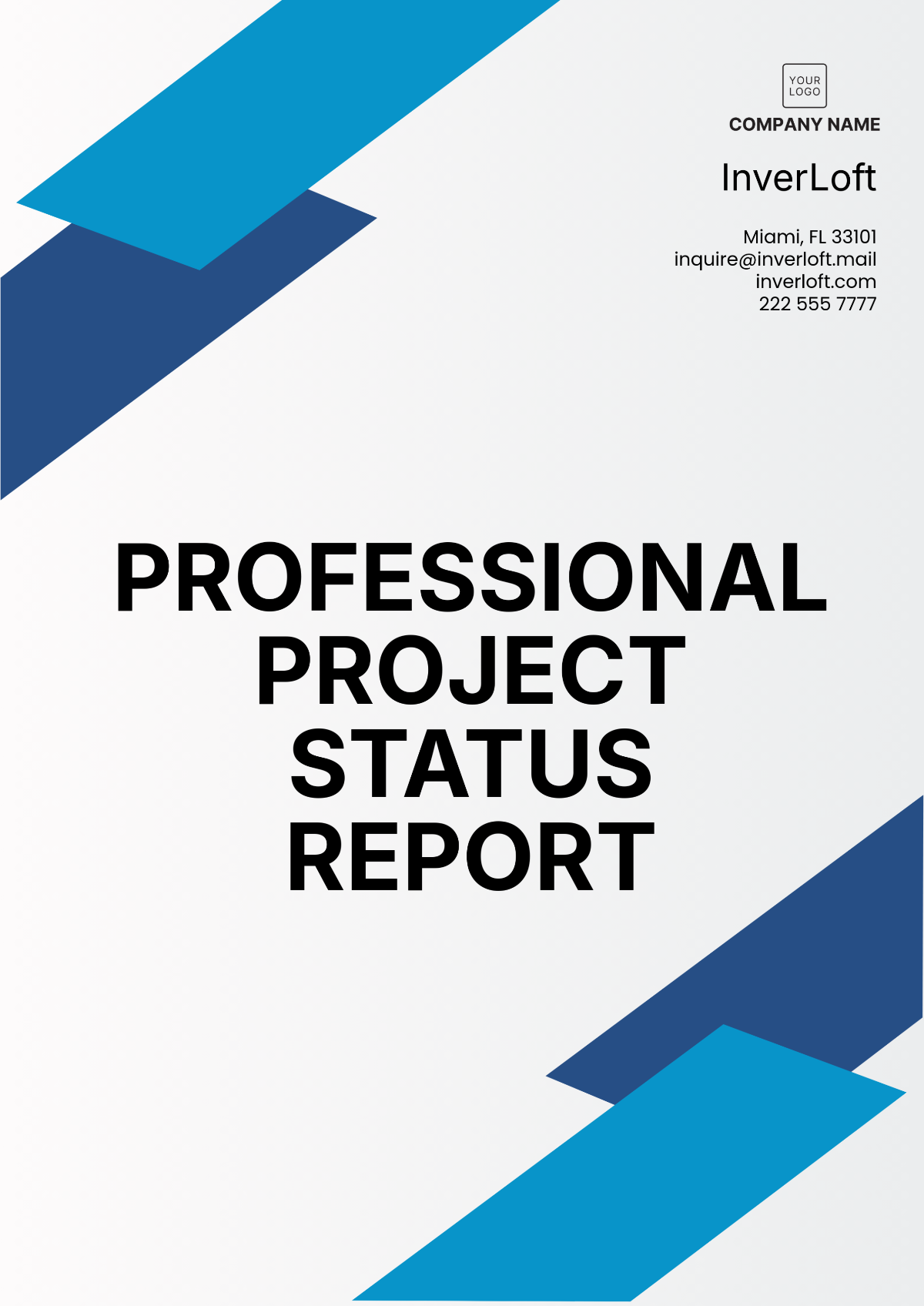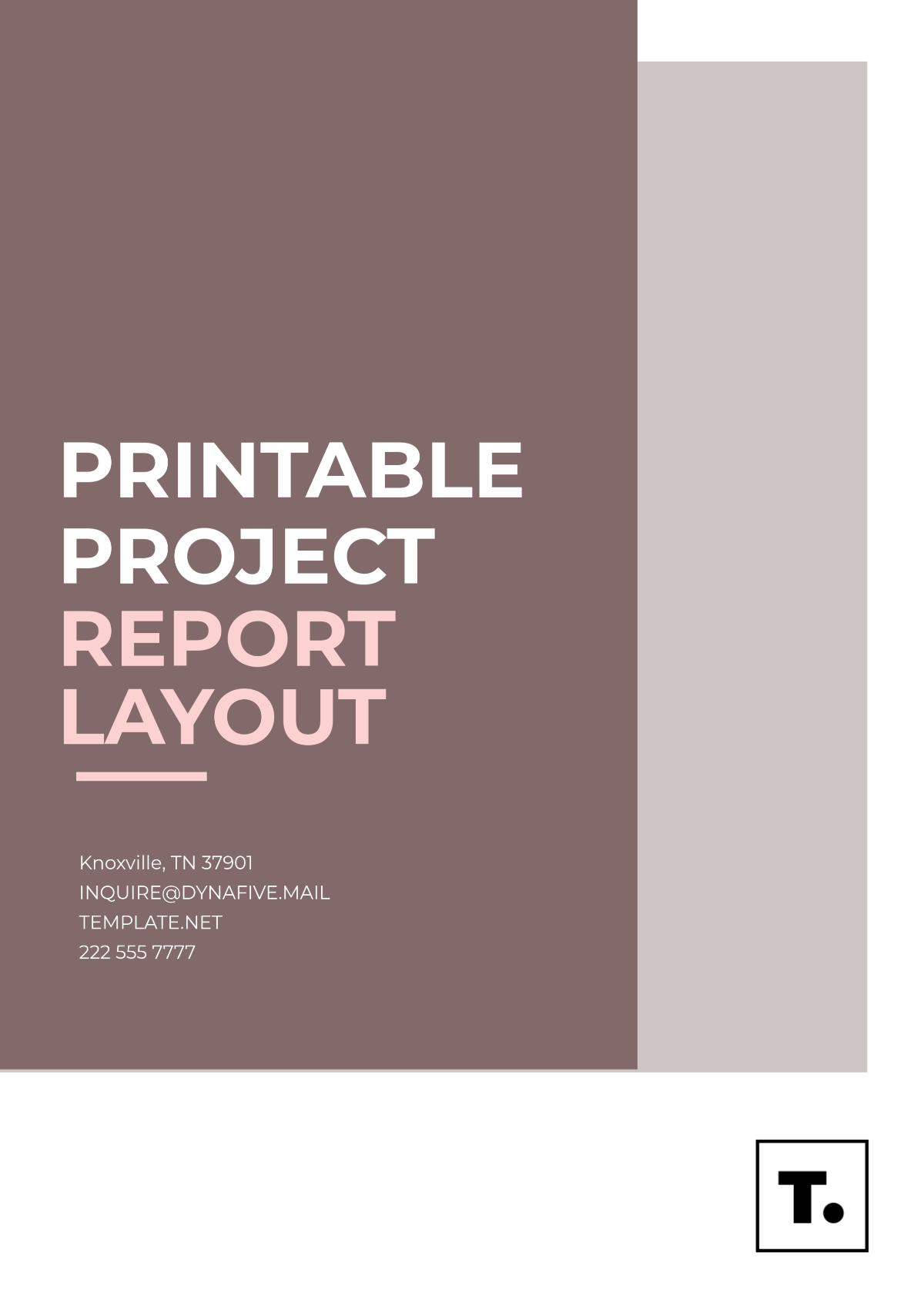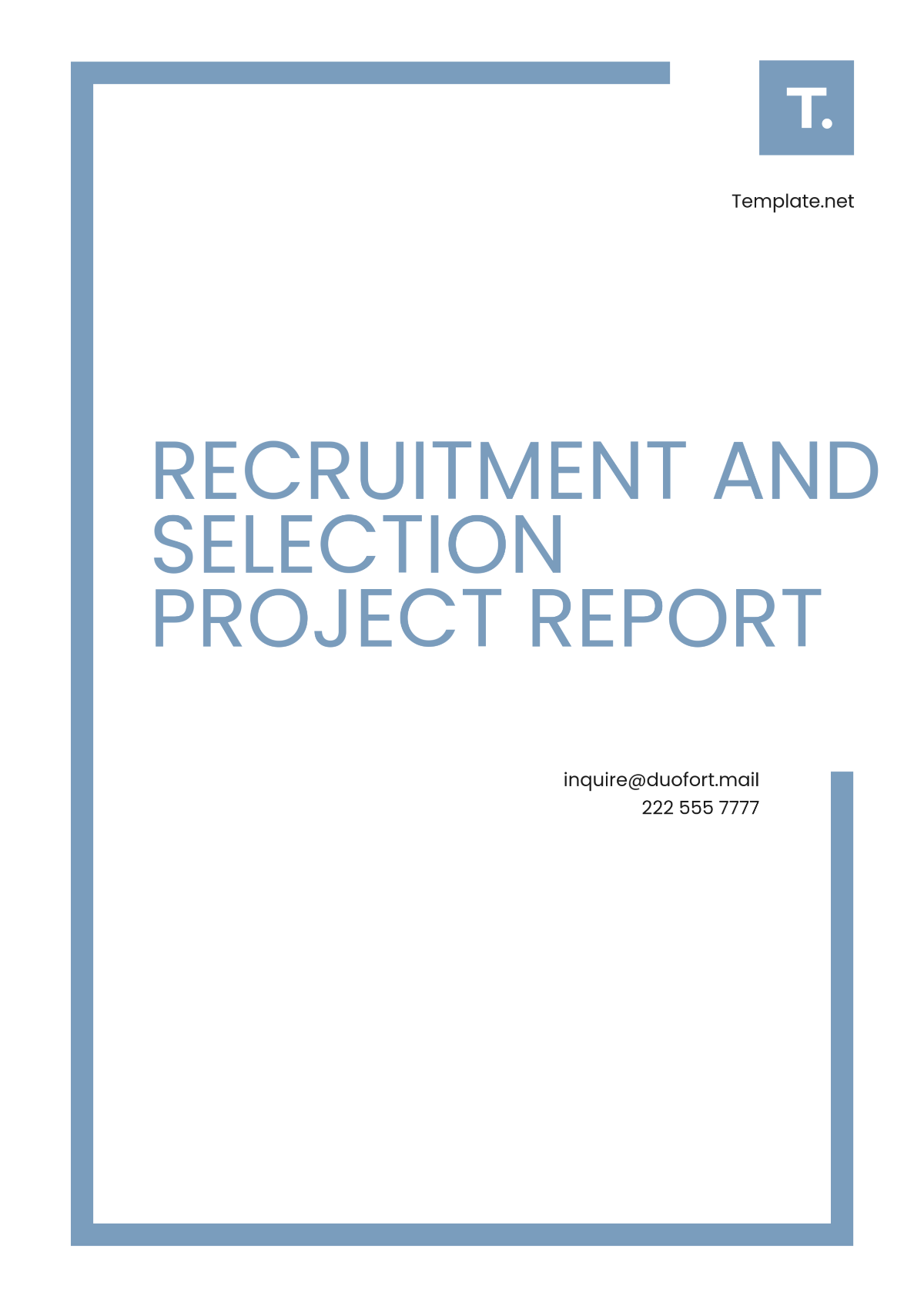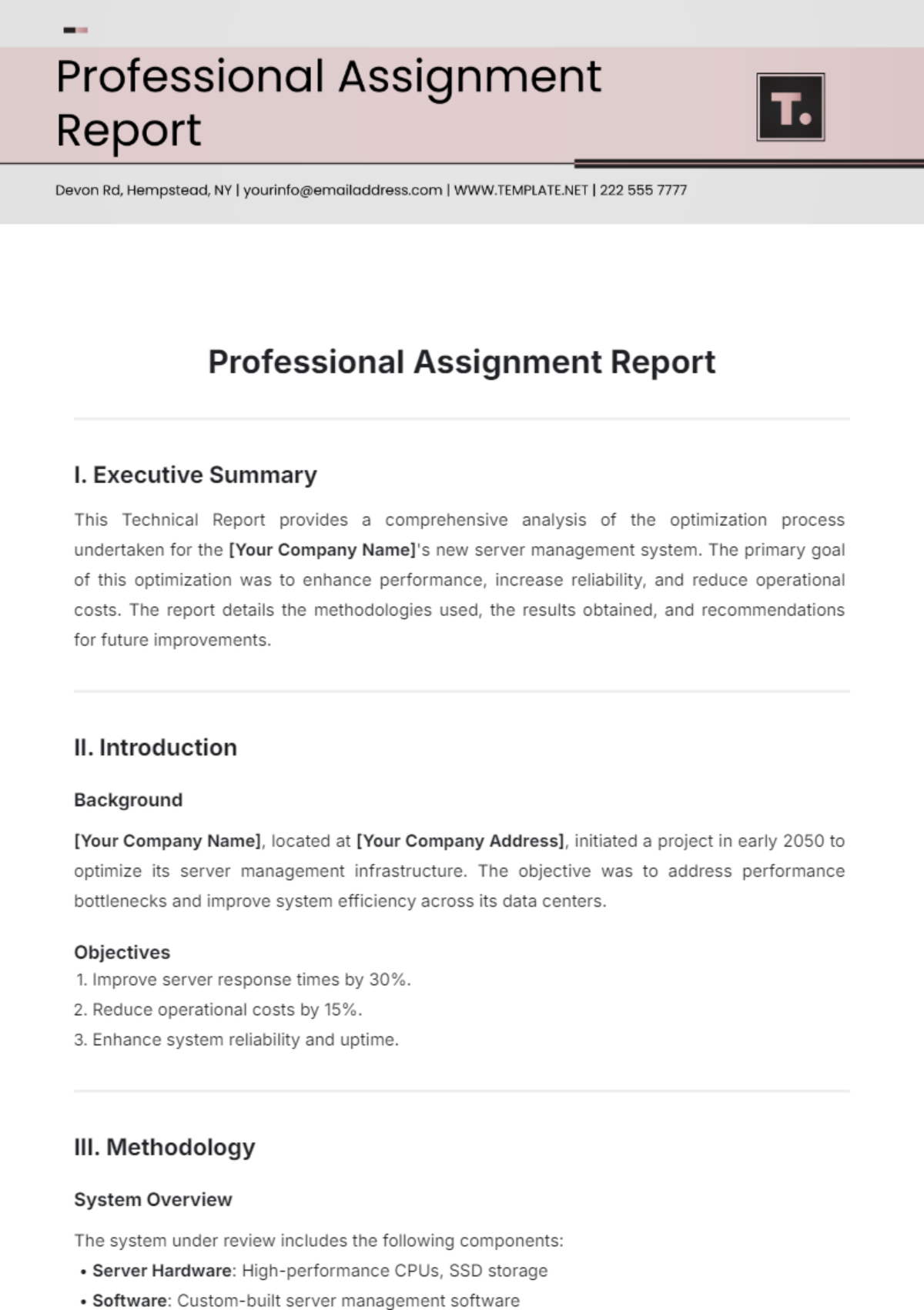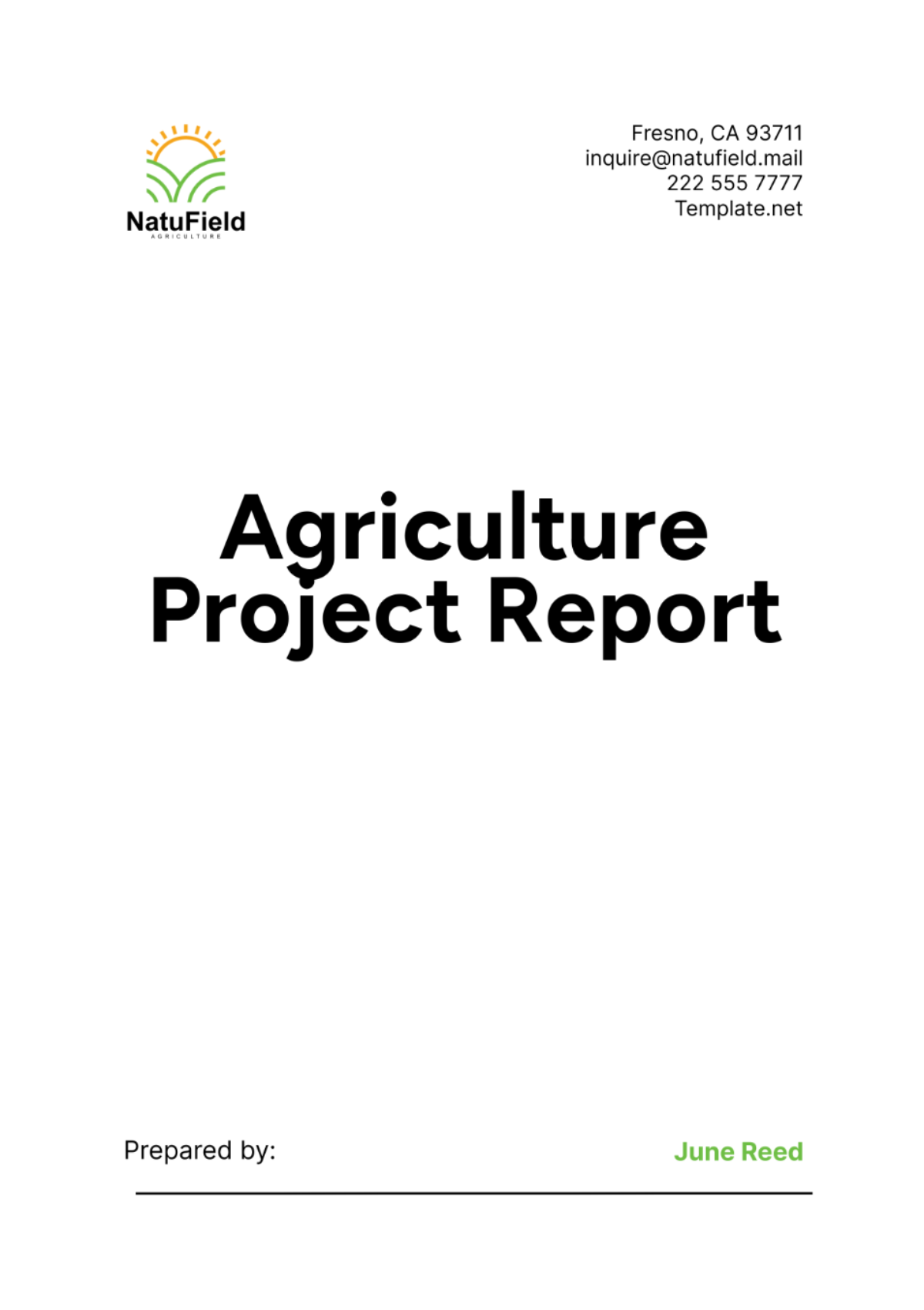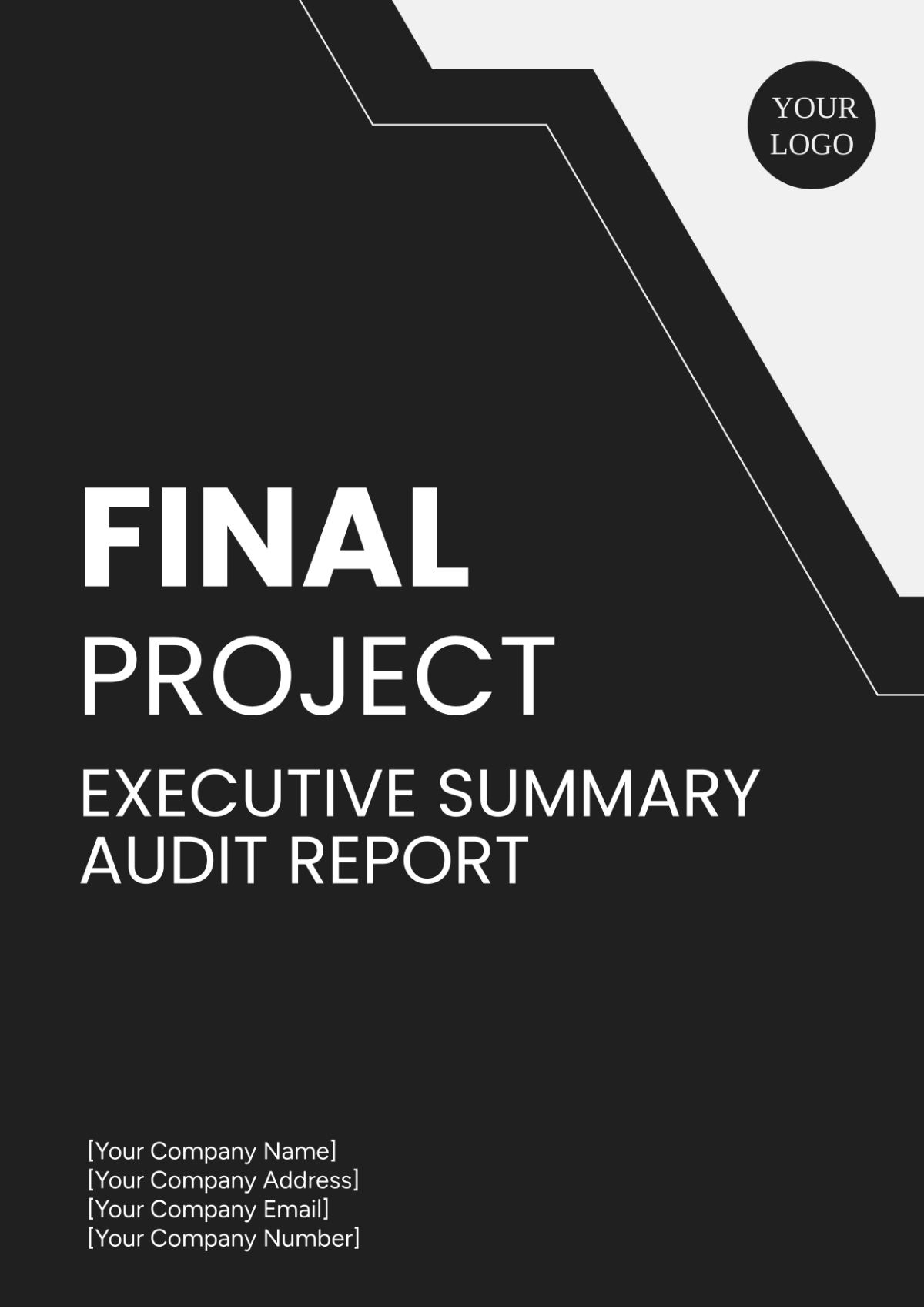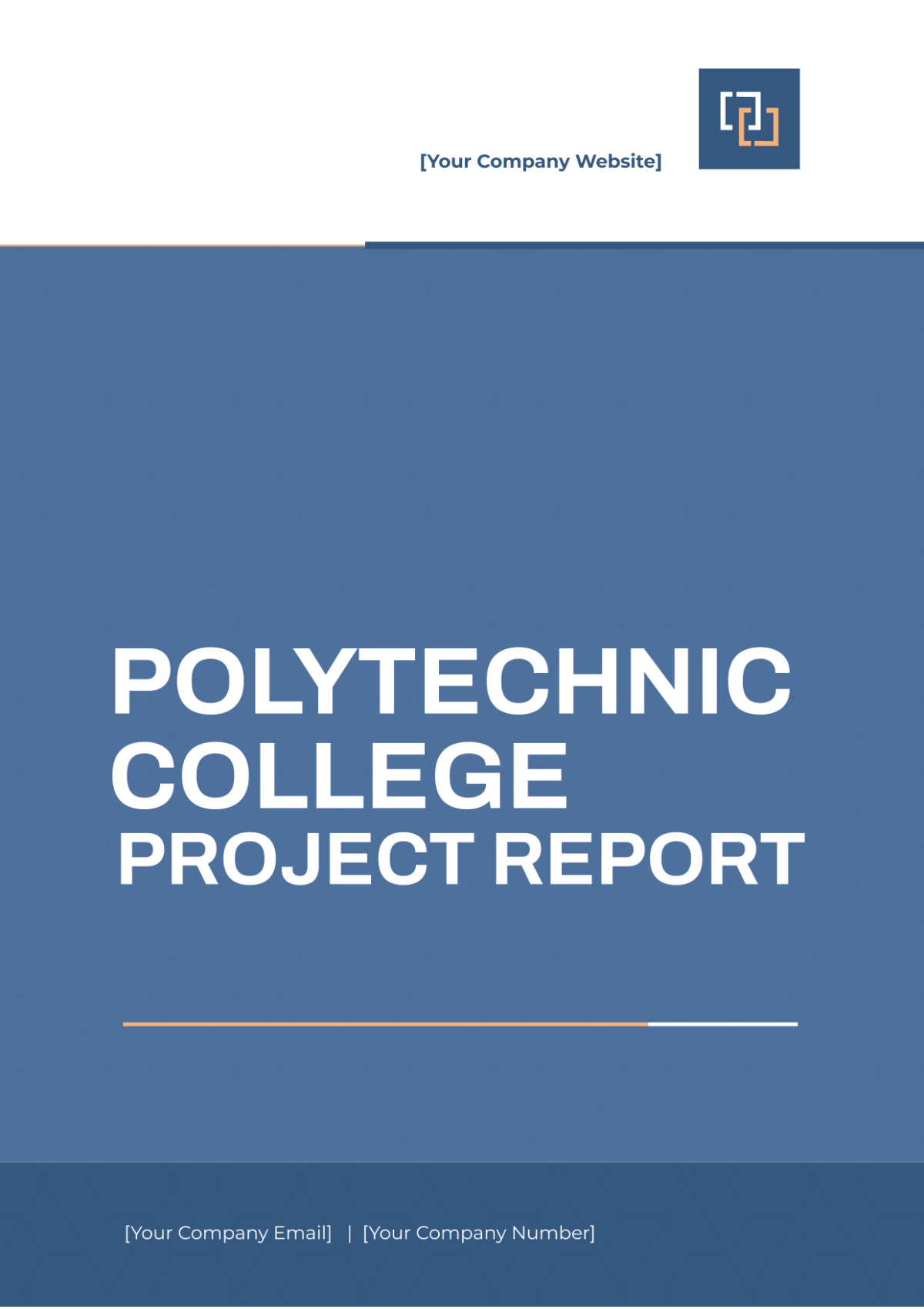Detailed Project Report (DPR)
Prepared by: [YOUR NAME]
Introduction
The Detailed Project Report (DPR) serves as a comprehensive and in-depth document that encapsulates the strategic, operational, and financial plan for a project. The objective of the DPR is to provide an exhaustive background about the project, detailing every aspect from inception to execution and operationalization.
Project Overview
Project Title
A descriptive title that encapsulates the essence of the project.
Executive Summary
This section offers a brief overview of the project, its scope, objectives, and anticipated outcomes. It sets the scene for the details that follow in the report, providing a concise yet informative snapshot of the project.
Objectives
Objective 1: Clearly defined primary goal of the project.
Objective 2: Additional goal supporting the primary aim.
Objective 3: Enhancements or expected improvements from the project implementation.
Scope
The scope outlines the boundaries and limits of the project, specifying what is included and what is beyond the purview of the project.
Background
Market Analysis
A detailed market analysis provides insights into the current market scenario, highlighting opportunities and threats. This includes an overview of market trends, competition, and potential demand for products/services.
Project Justification
This section elaborates on the need for the project, clearly articulating why this project is essential and how it stands to benefit the stakeholders involved.
SWOT Analysis
Strengths | Weaknesses | Opportunities | Threats |
|---|---|---|---|
|
|
|
|
Technical Details
Technology Stack
This section provides details on the technology and tools to be utilized in the course of the project. It will address the software and hardware requirements critical for project execution.
Design and Engineering
Here, the proposed design frameworks and engineering methodologies are discussed. It includes schematic representations and technical blueprints.
Implementation Plan
Phase 1: Planning and resource allocation.
Phase 2: Development and prototyping.
Phase 3: Testing and quality assurance.
Phase 4: Deployment and implementation.
Phase 5: Monitoring and maintenance.
Financial Analysis
Investment Requirements
Details the capital expenditures required to bring the project from conception to reality. This includes initial setup costs, operational costs, and unforeseen expenditures.
Budget Allocation
Category | Budget (USD) |
|---|---|
Research and Development | 100,000 |
Infrastructure | 200,000 |
Marketing | 150,000 |
Projected Return on Investment (ROI)
This section forecasts the expected financial returns from the project over a specified period, taking into account the investment and potential revenue streams. This analysis helps stakeholders make informed decisions.
Risk Management
Risk Identification
All identifiable risks associated with different project phases are outlined in this section. It categorizes risks into high, medium, and low based on their impact and likelihood.
Mitigation Strategies
For each identified risk, the potential mitigation strategies are detailed. This provides a roadmap for minimizing impacts and ensuring project resilience.
Governance Structure
Organizational Structure
This section details the project team structure, key roles, and responsibilities. It includes an organization chart that visually represents the hierarchy and lines of authority.
Stakeholder Engagement
Details how stakeholder engagement will be managed throughout the project lifecycle, ensuring continuous communication and involvement from all key stakeholders.
Conclusion
The Detailed Project Report concludes by reiterating the crucial points, expected outcomes, and the strategic advantage the project holds. It emphasizes the importance of timely execution and adherence to the outlined framework to ensure successful completion.
